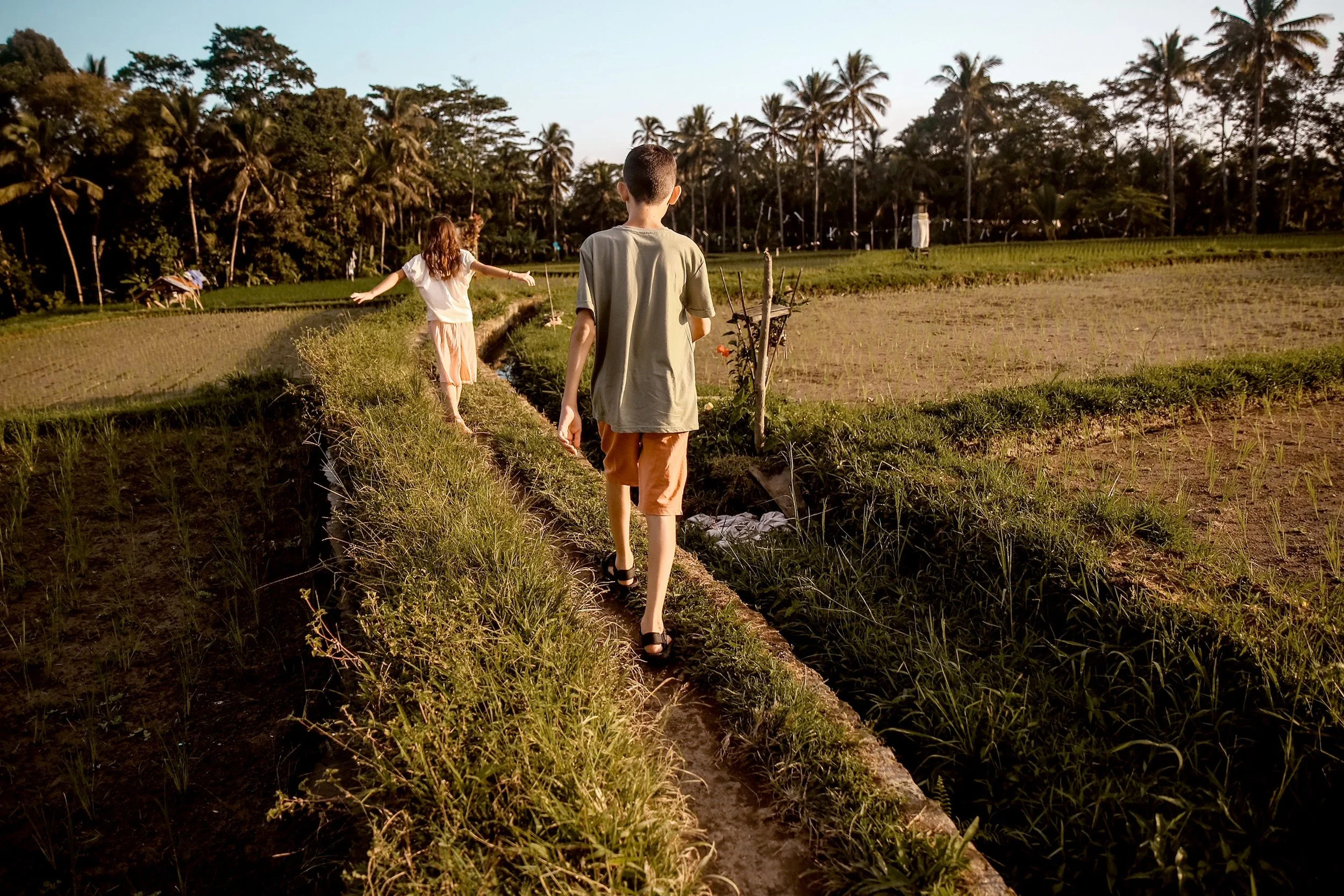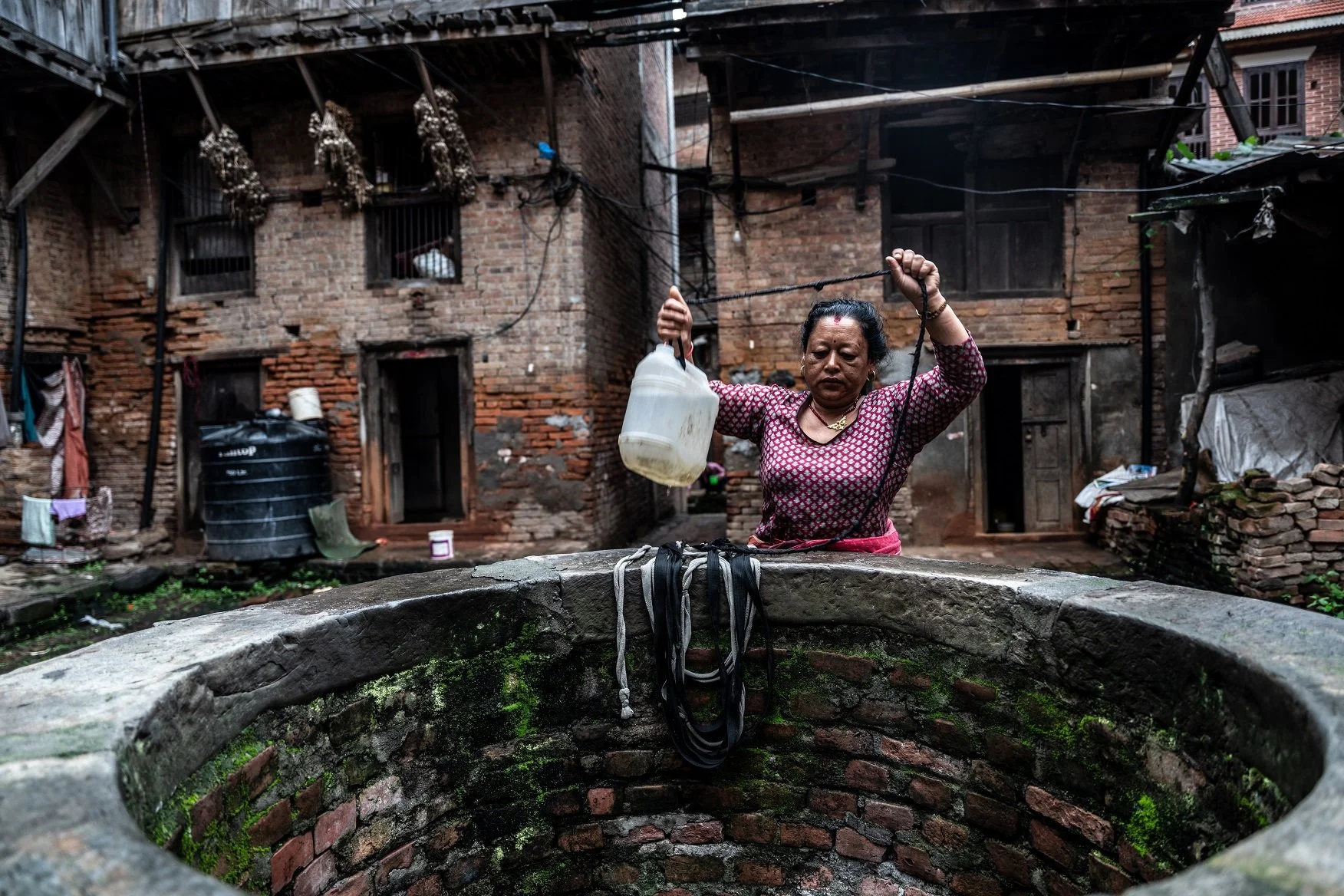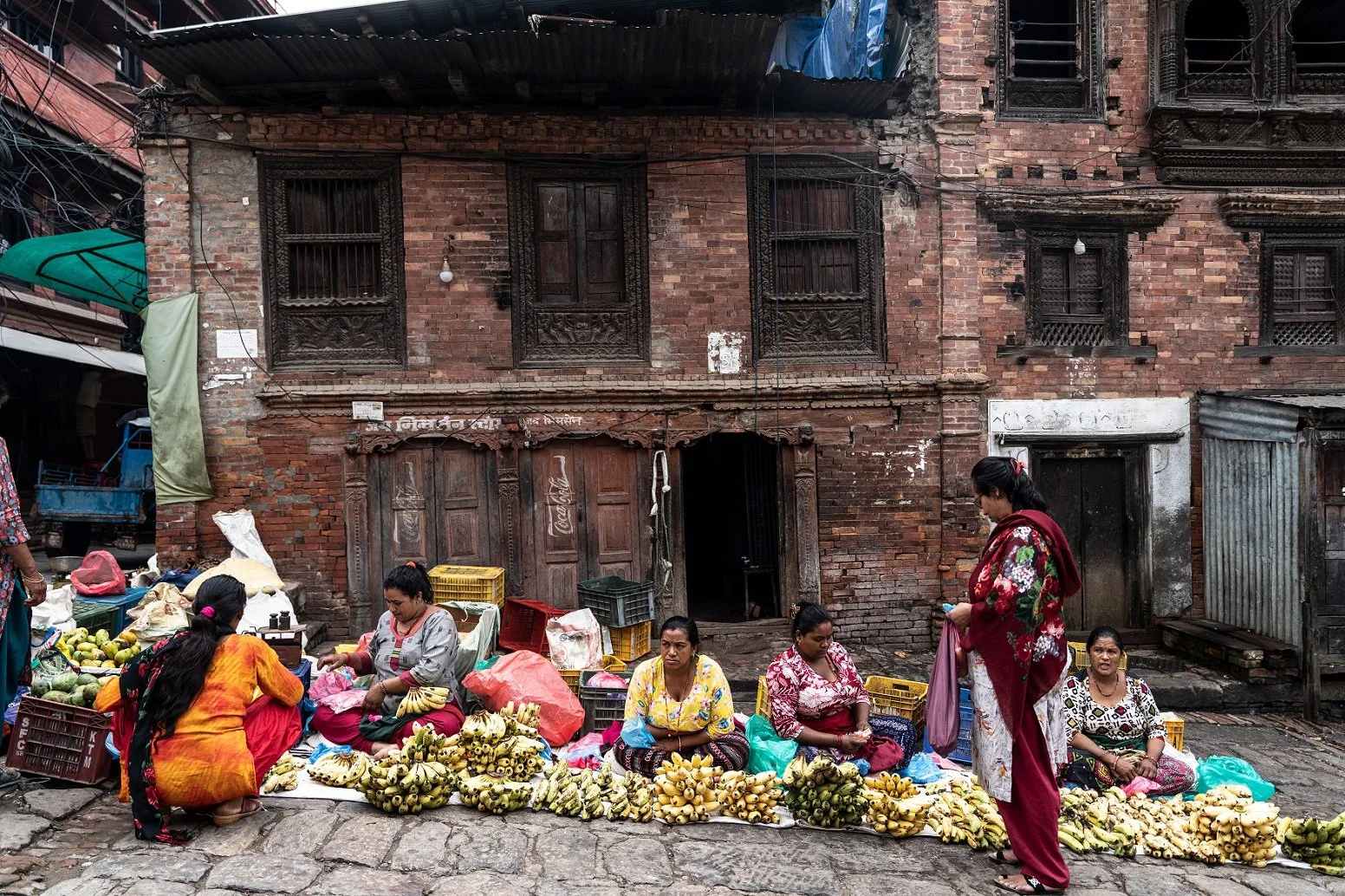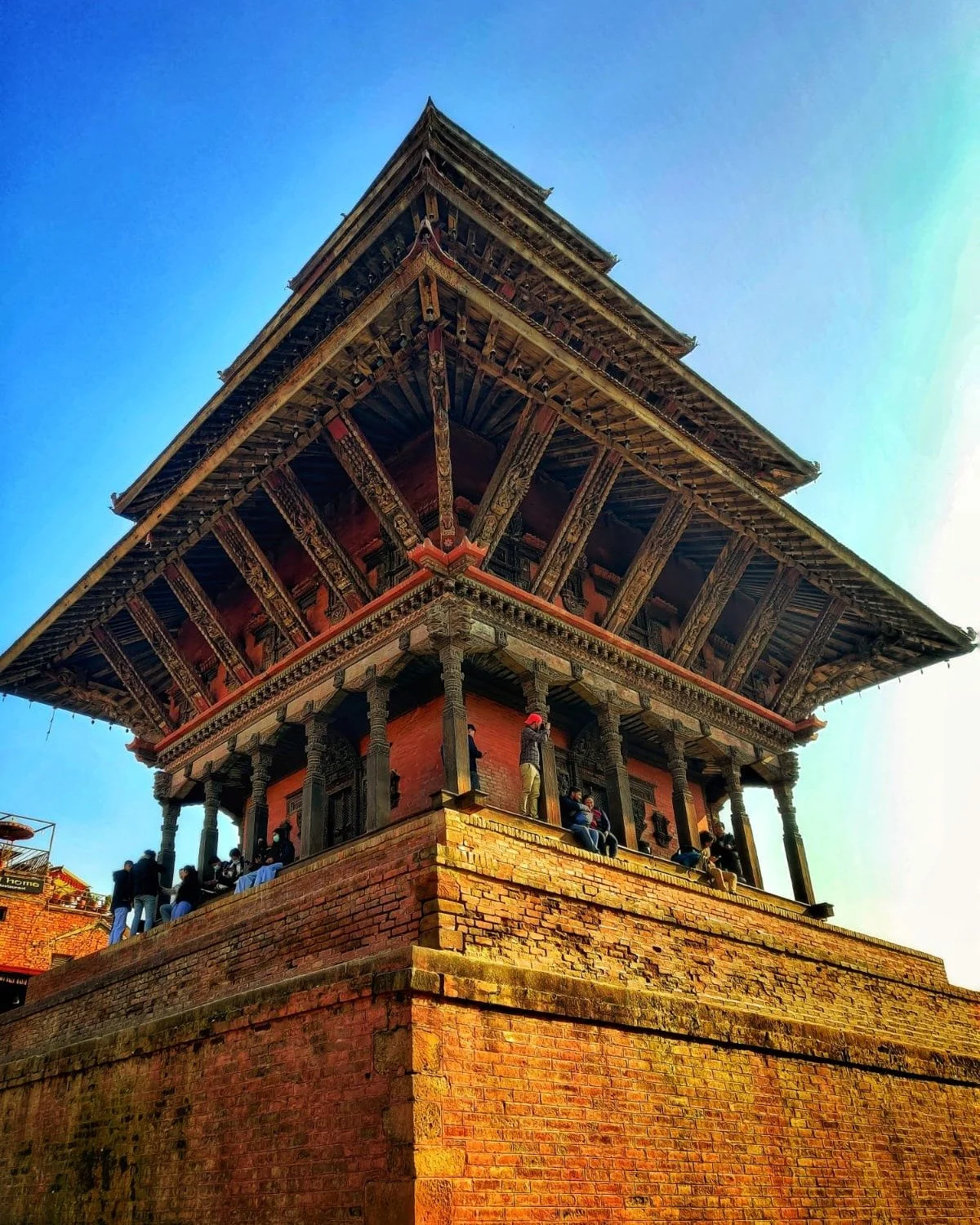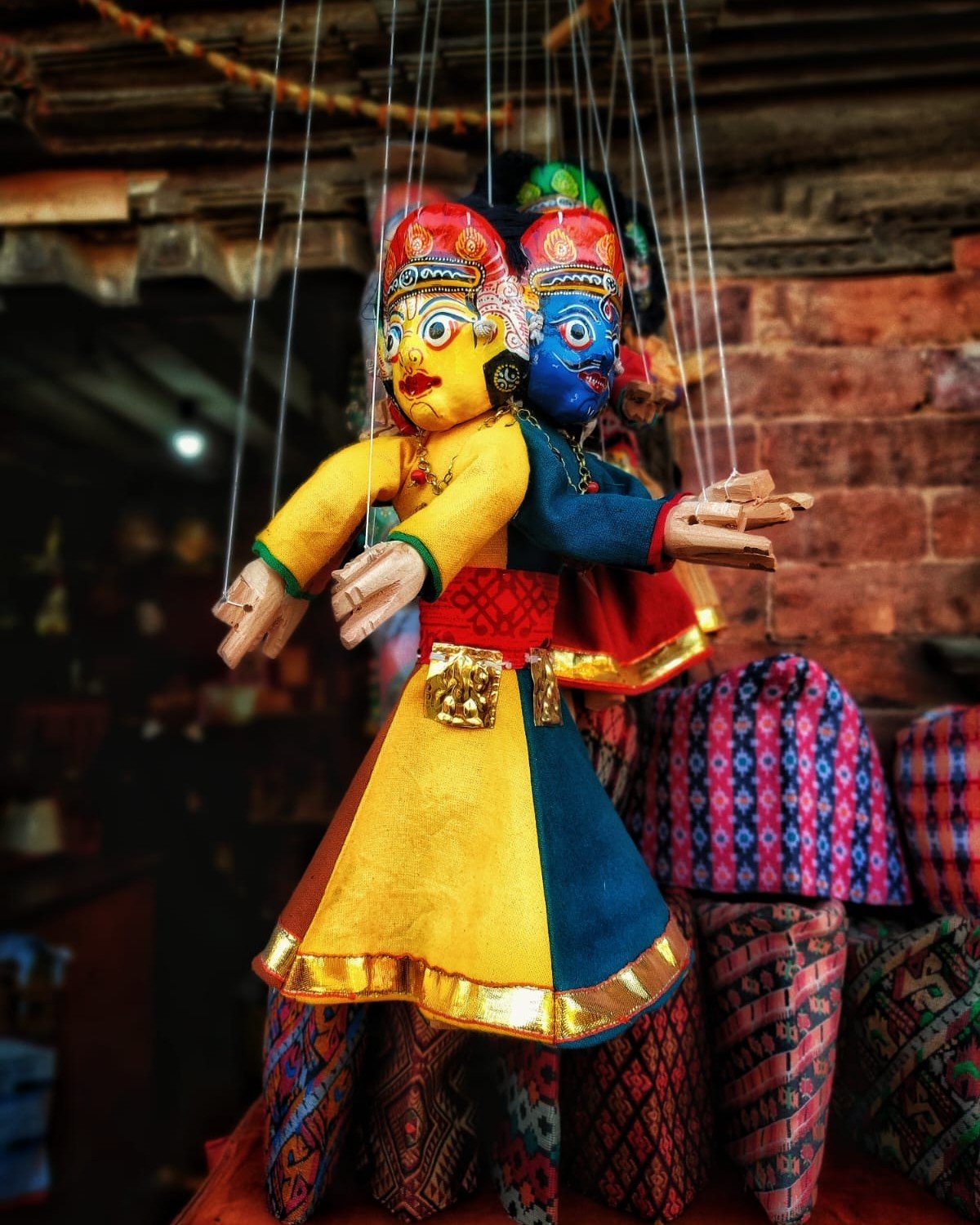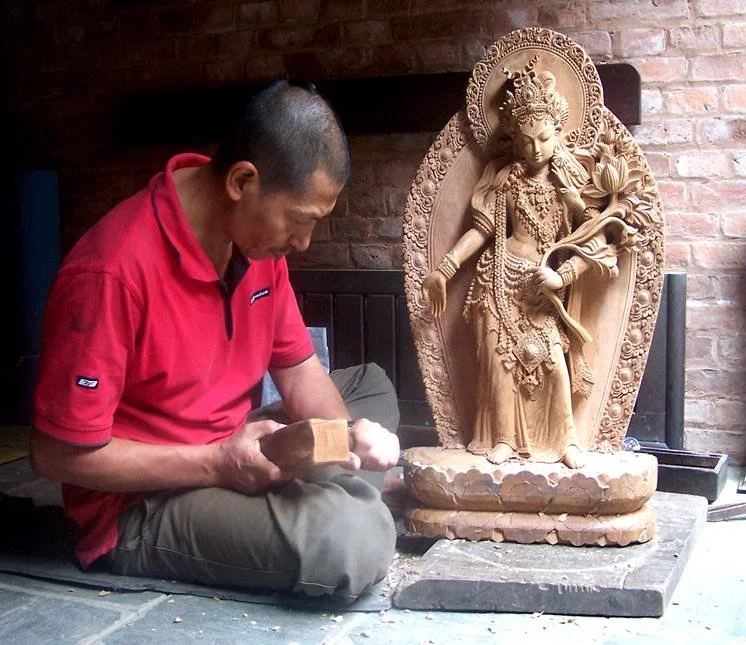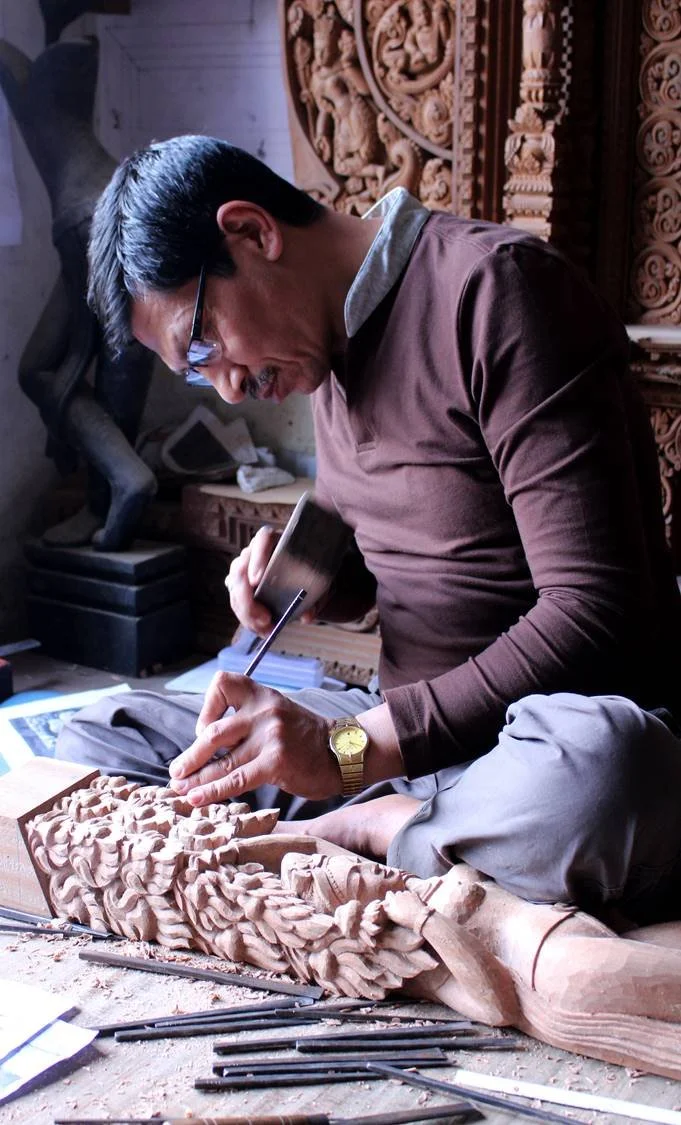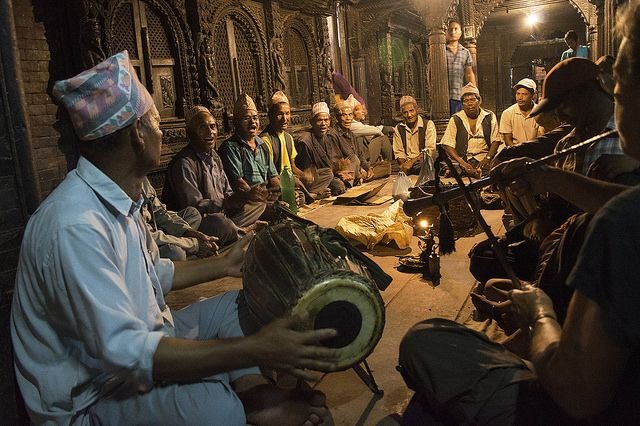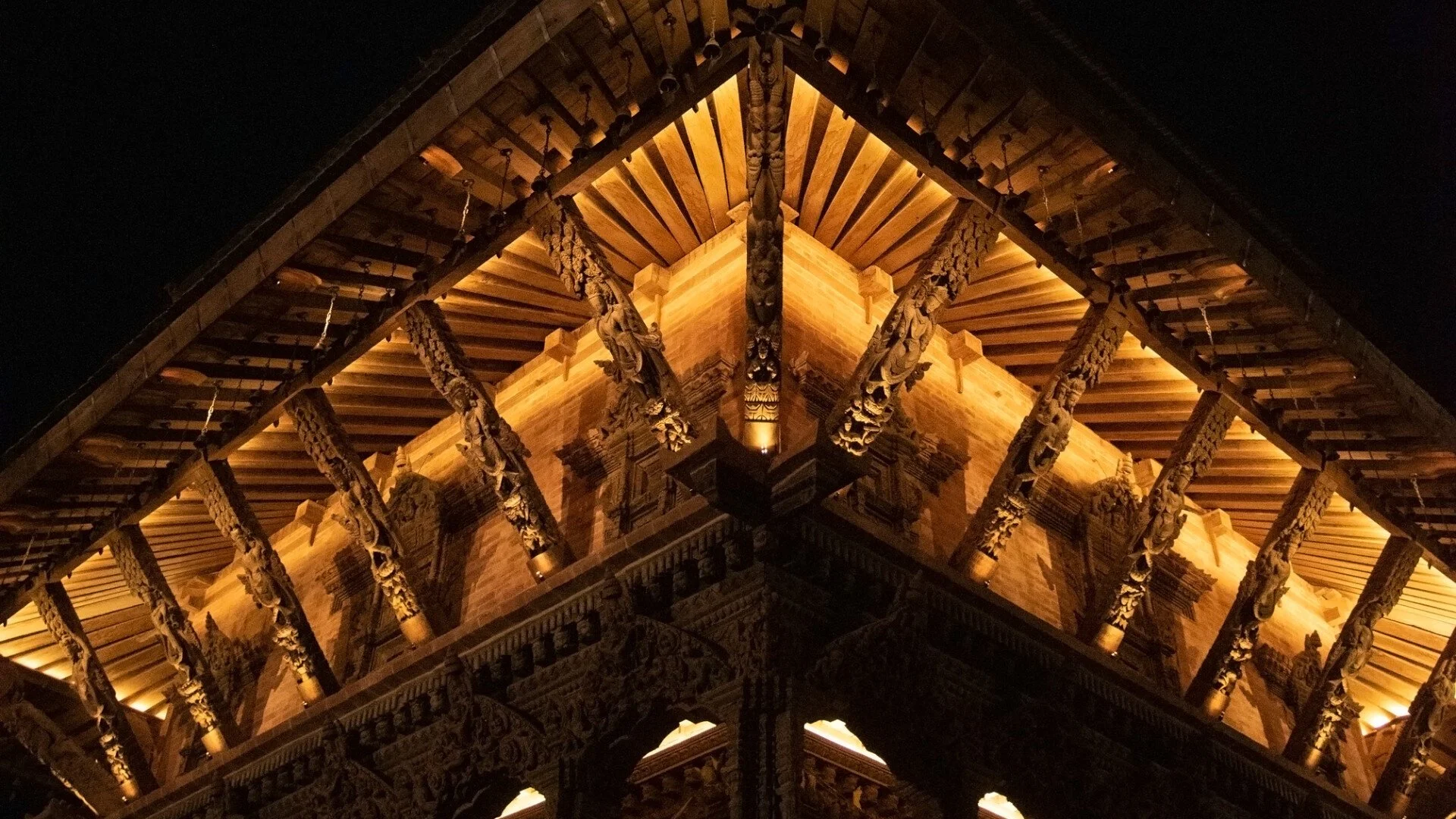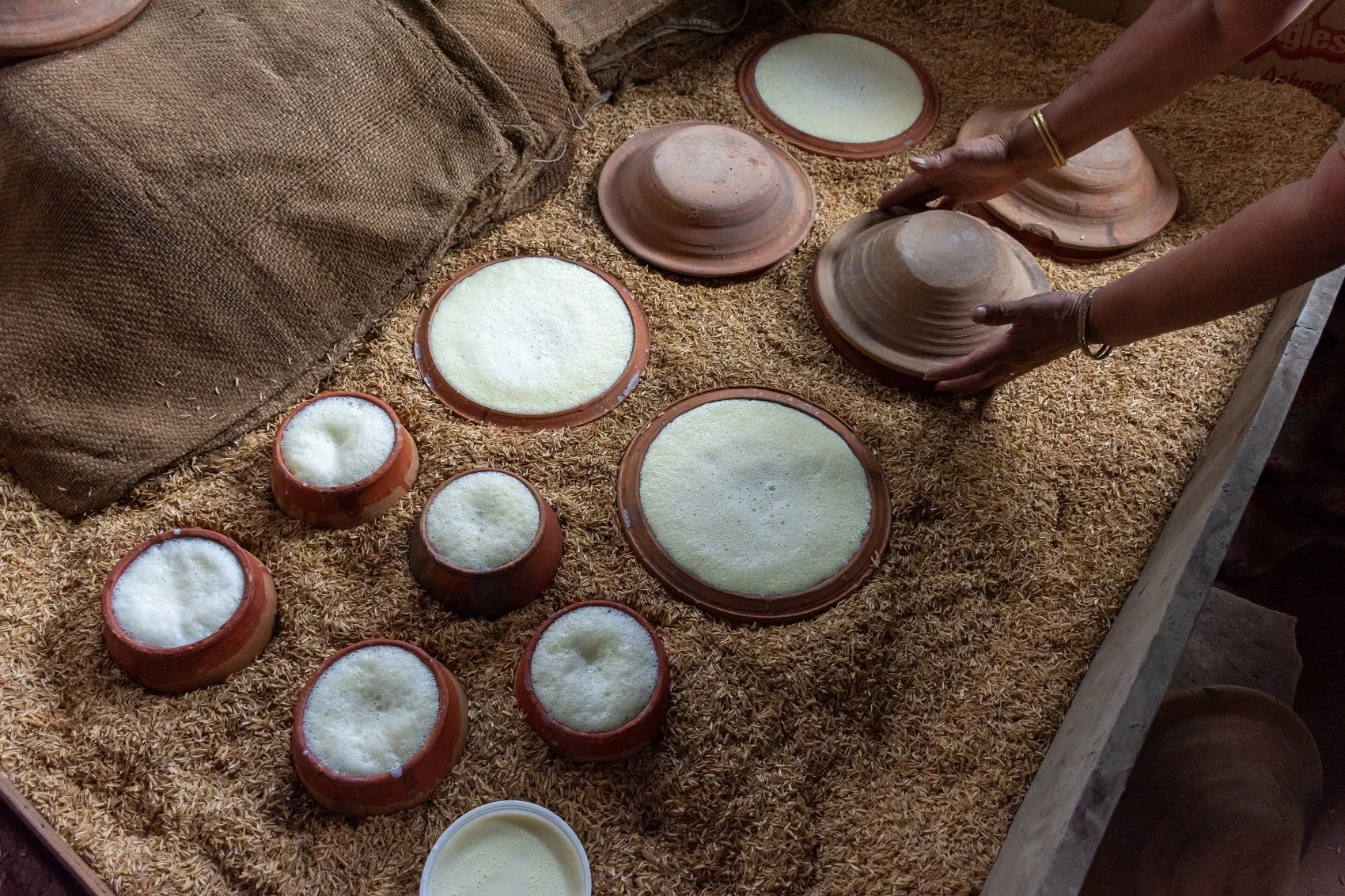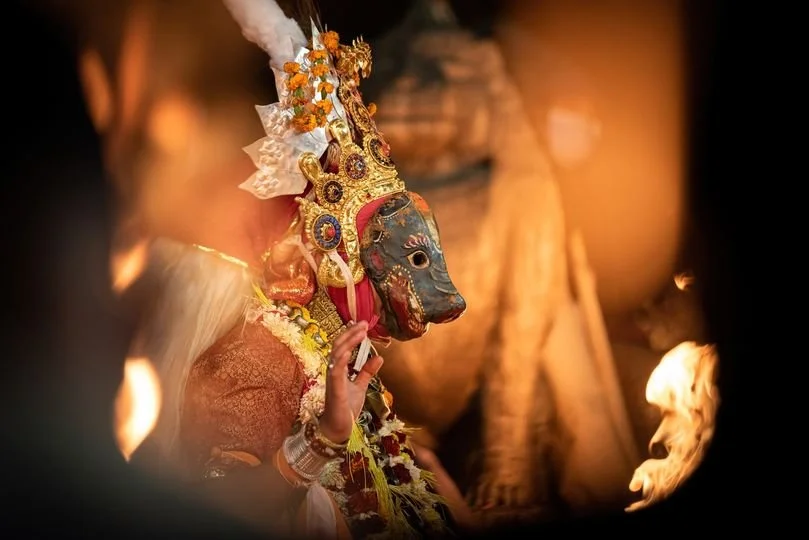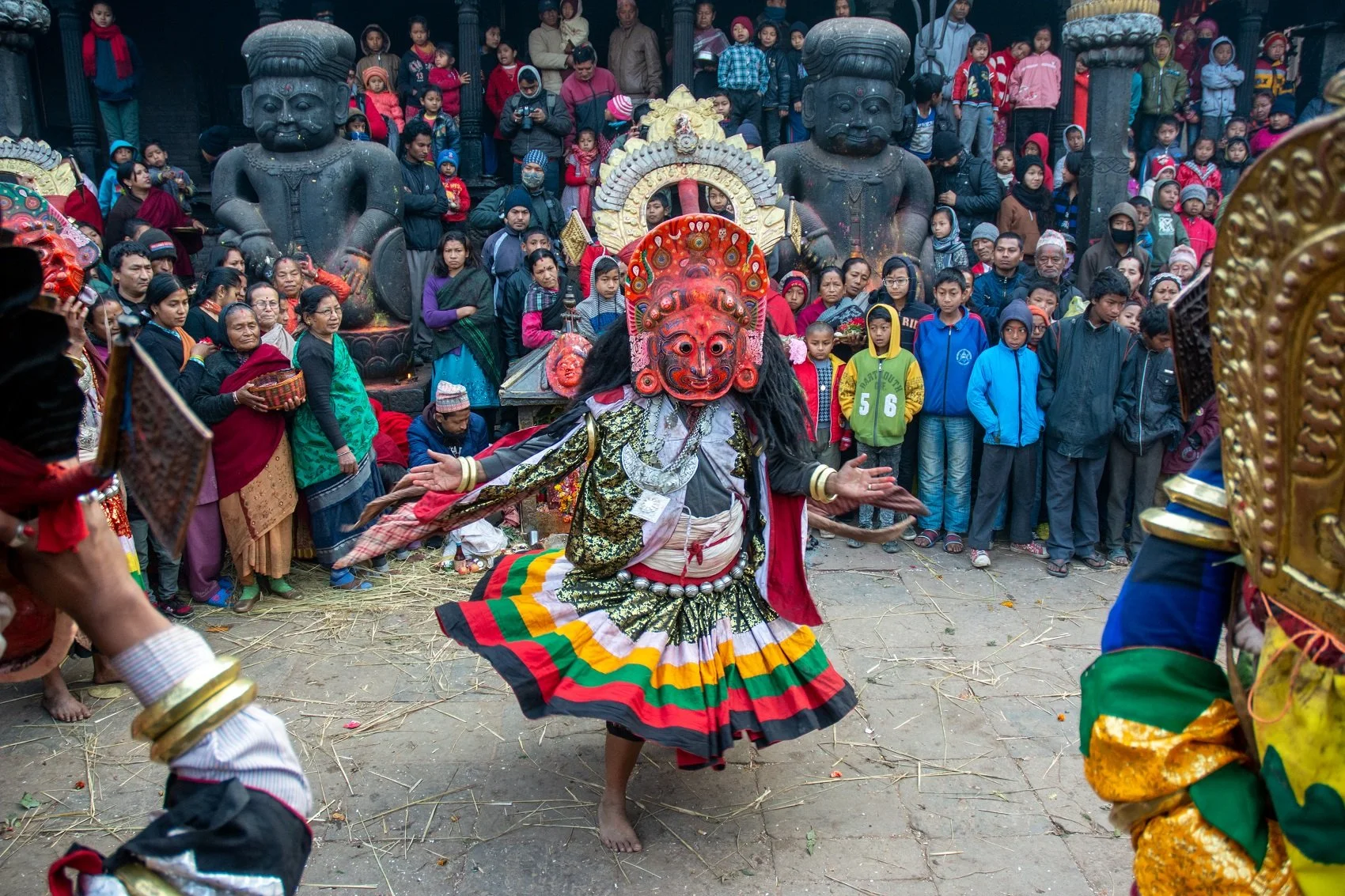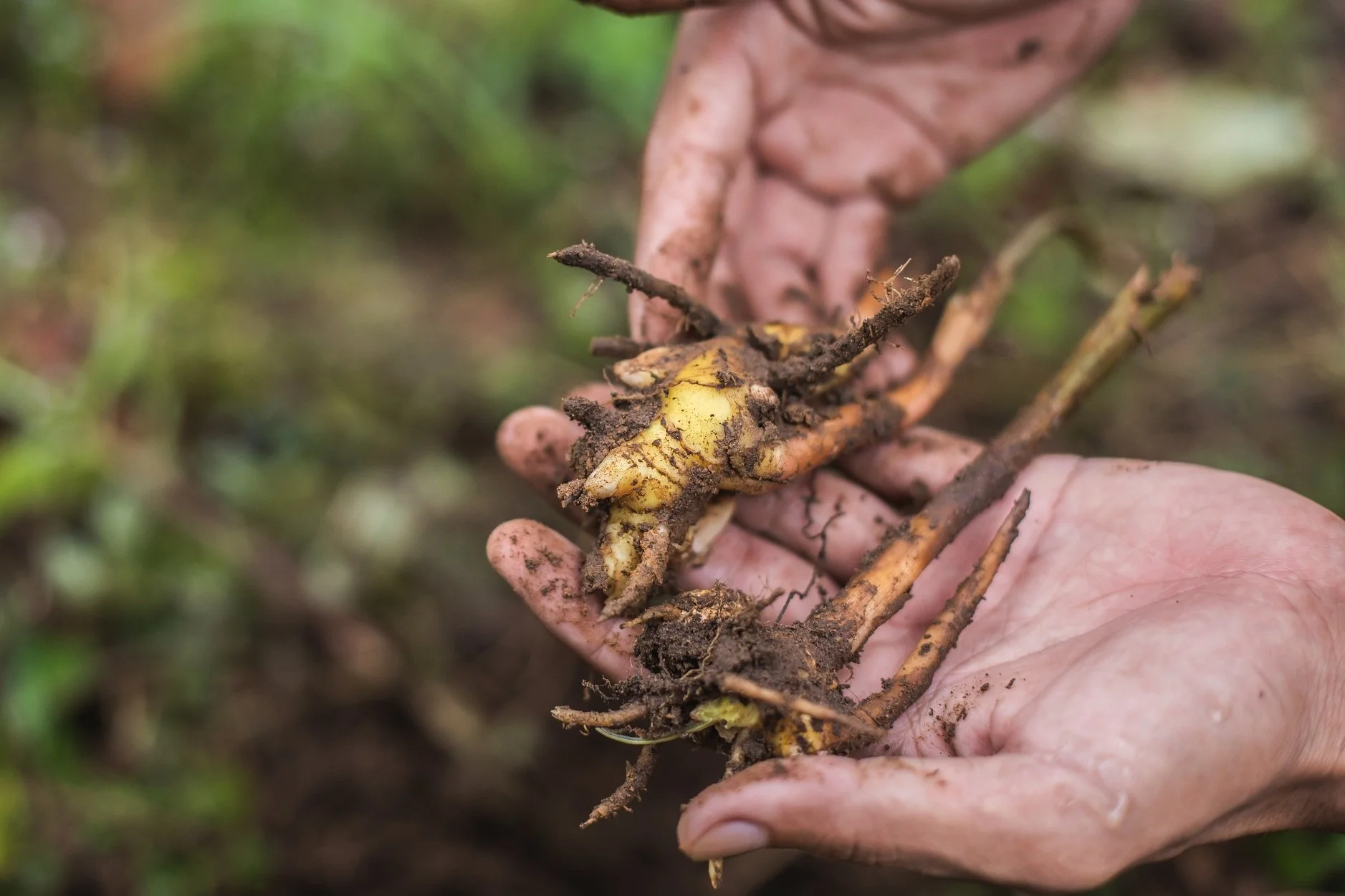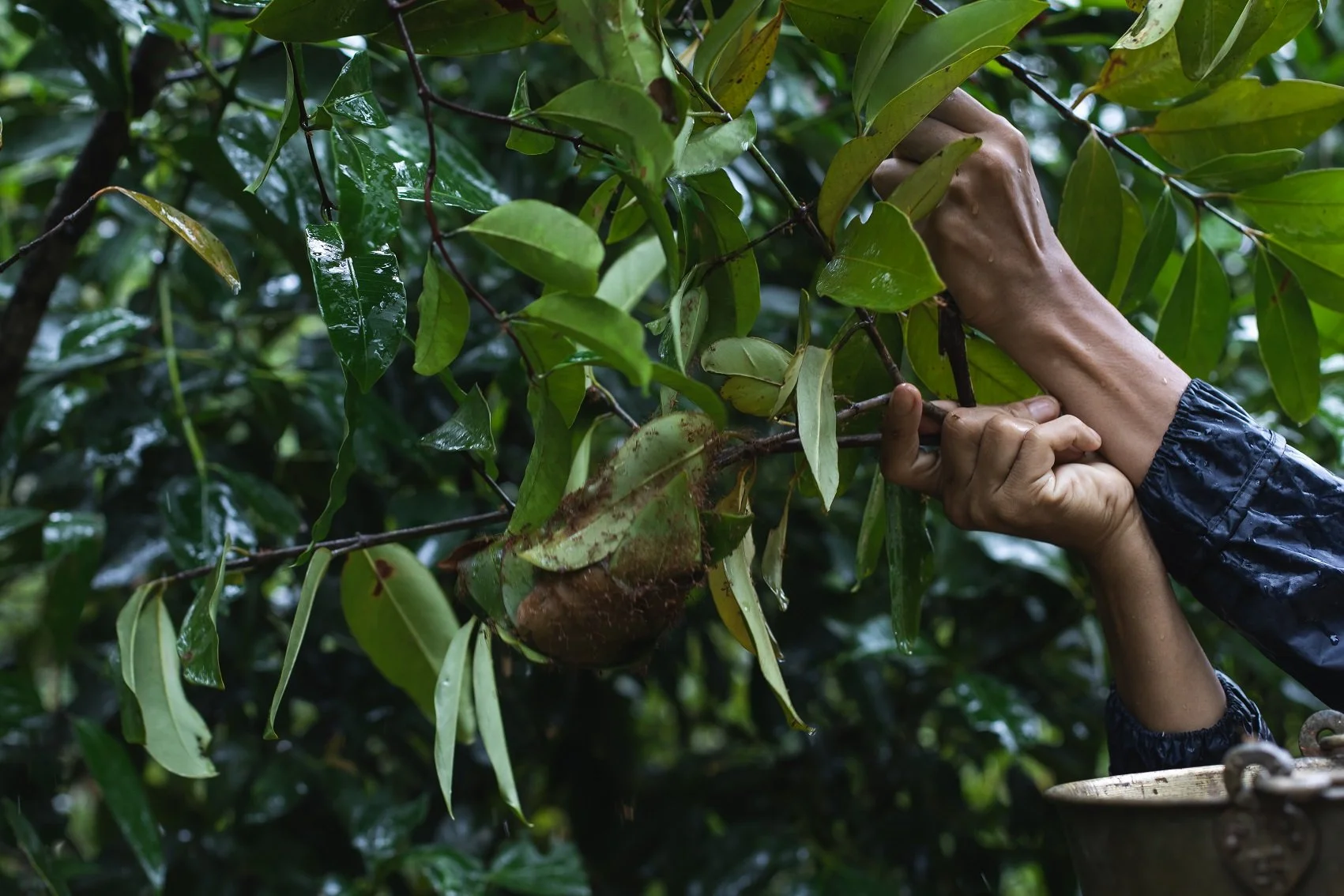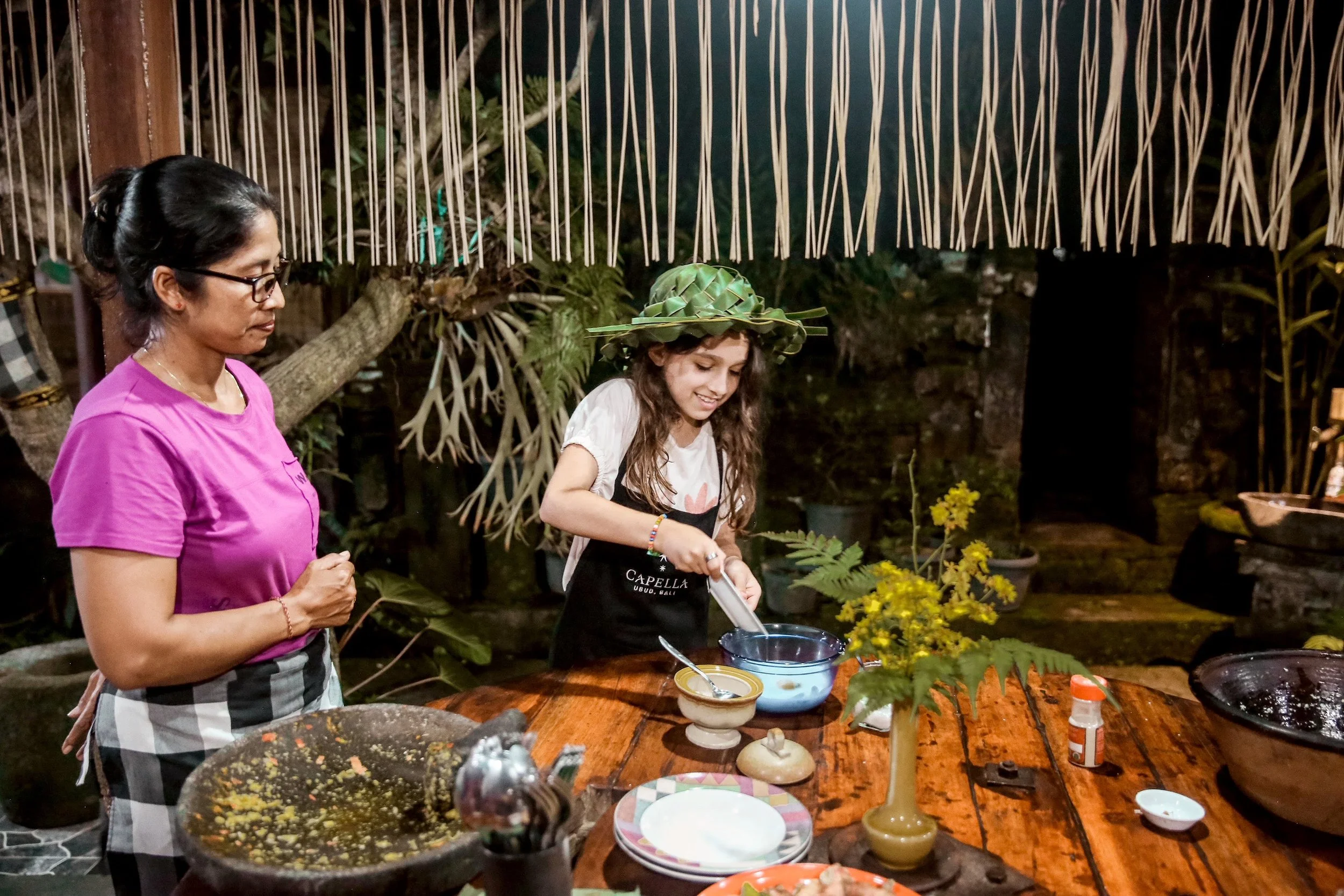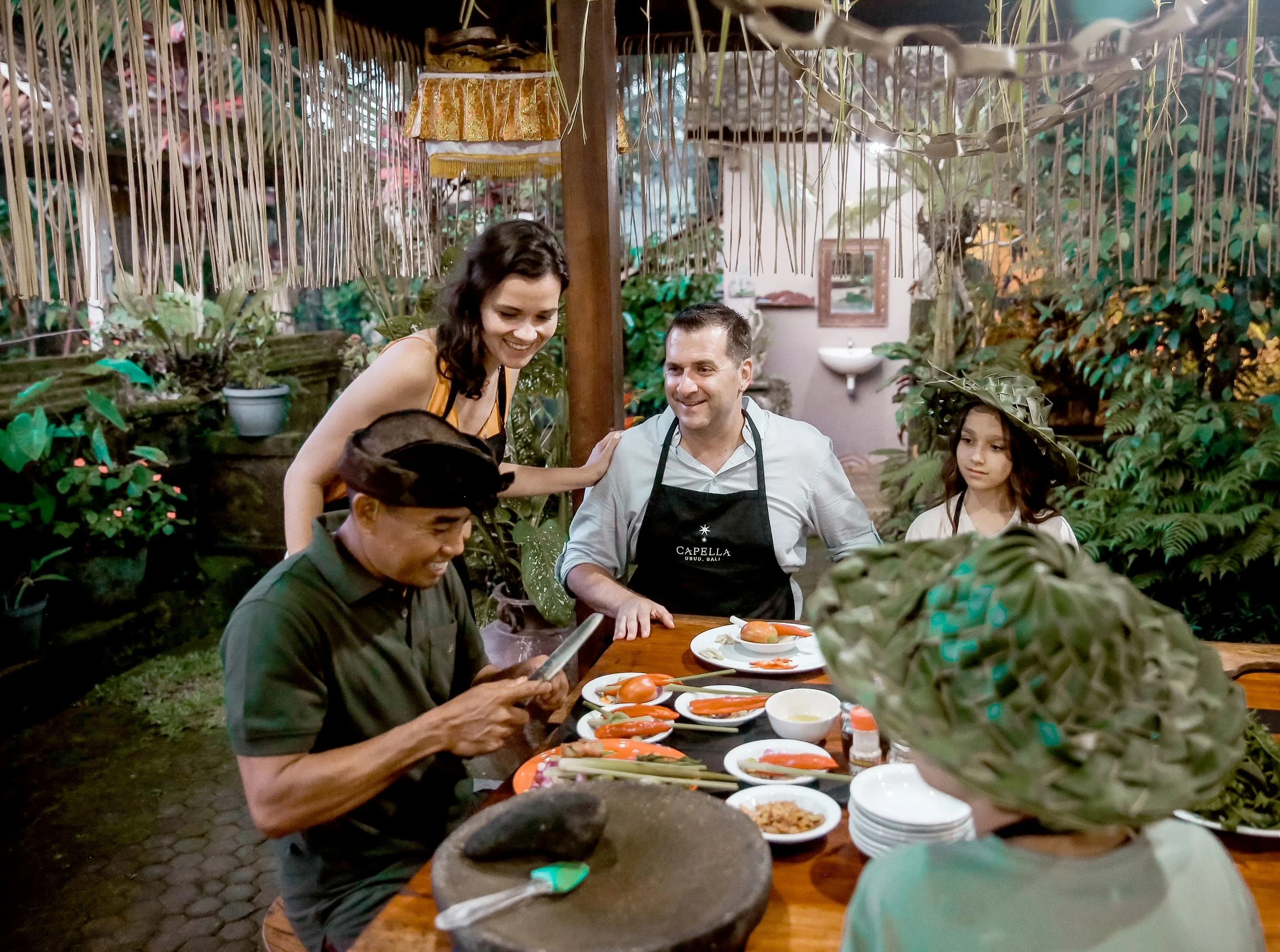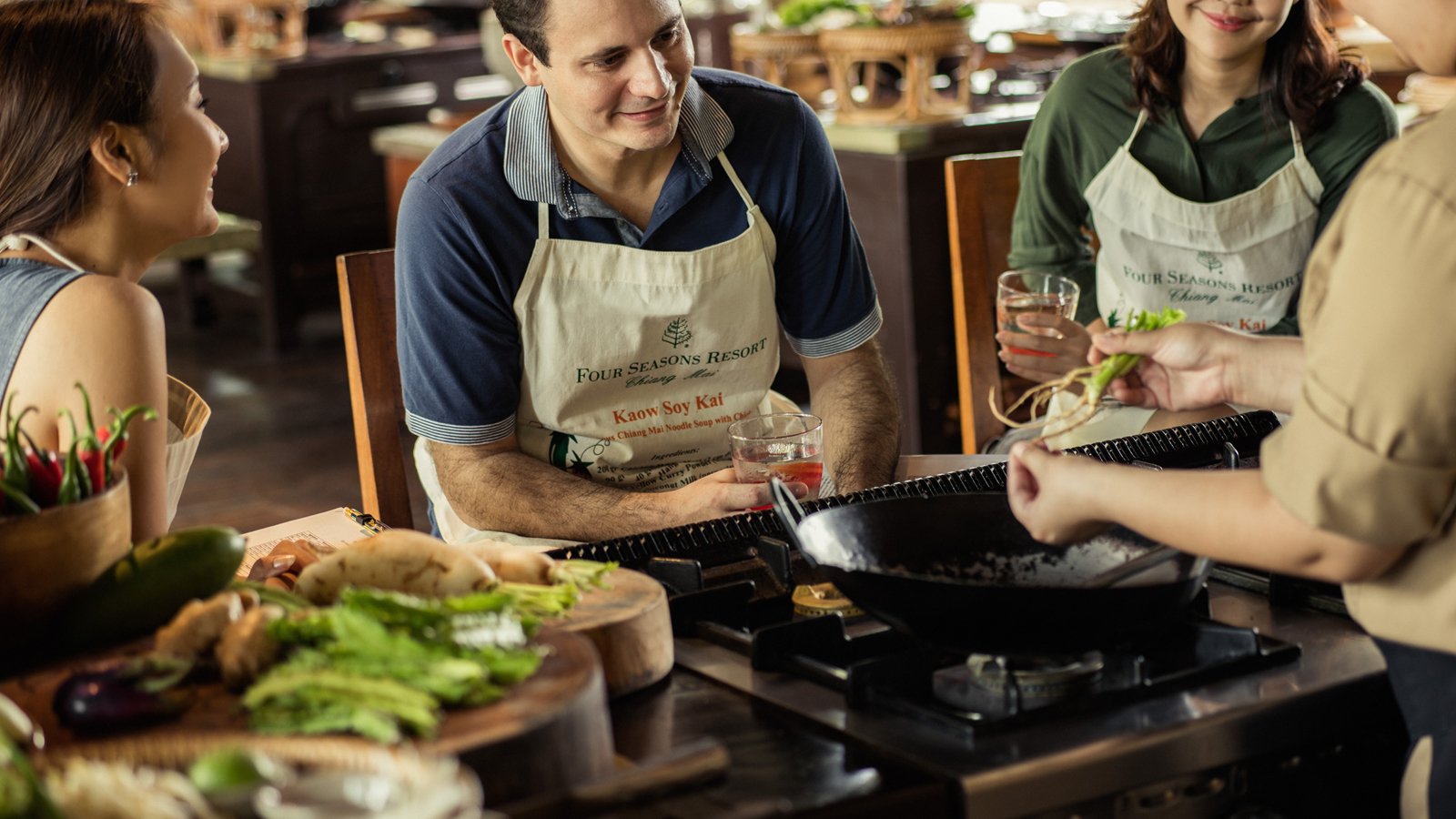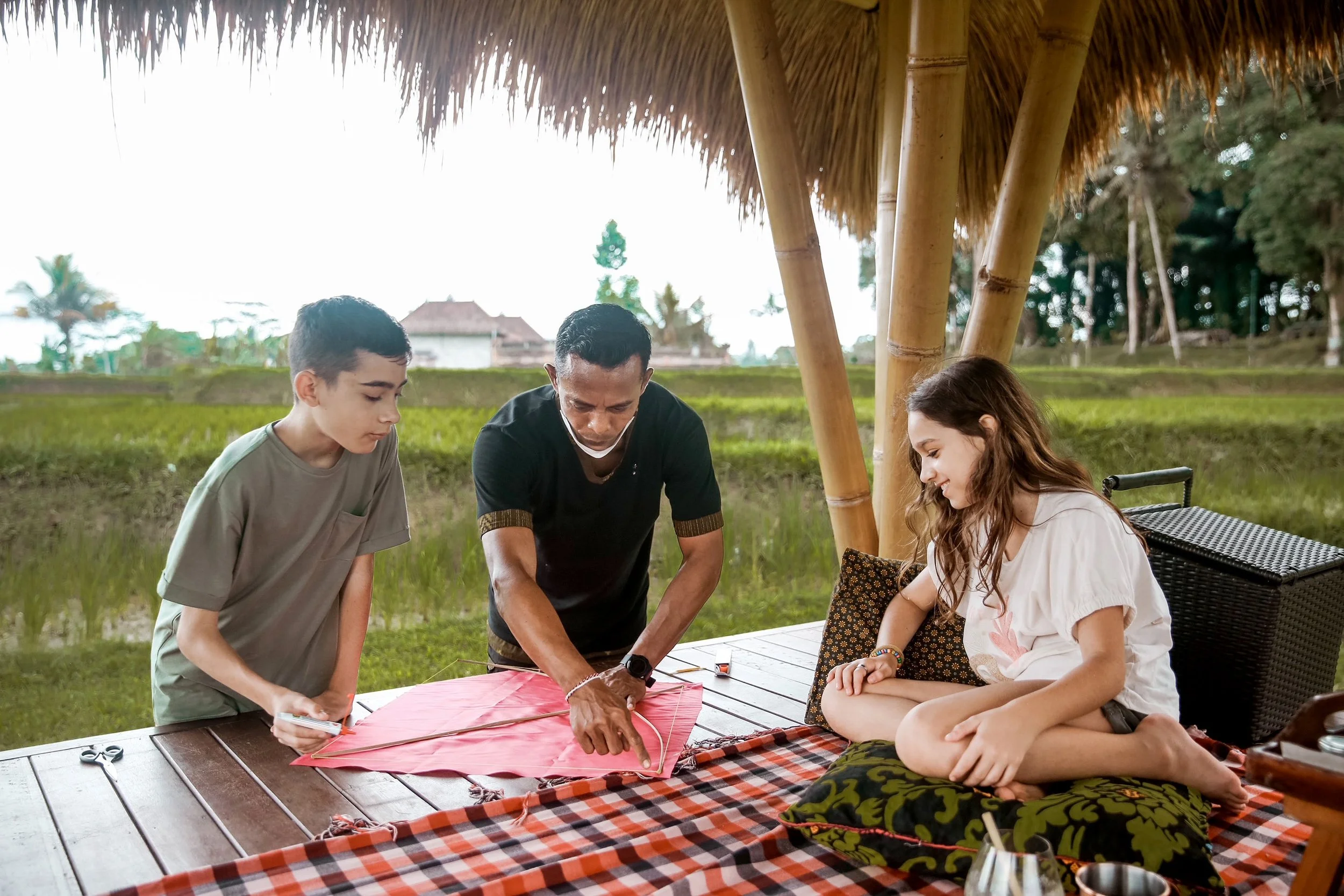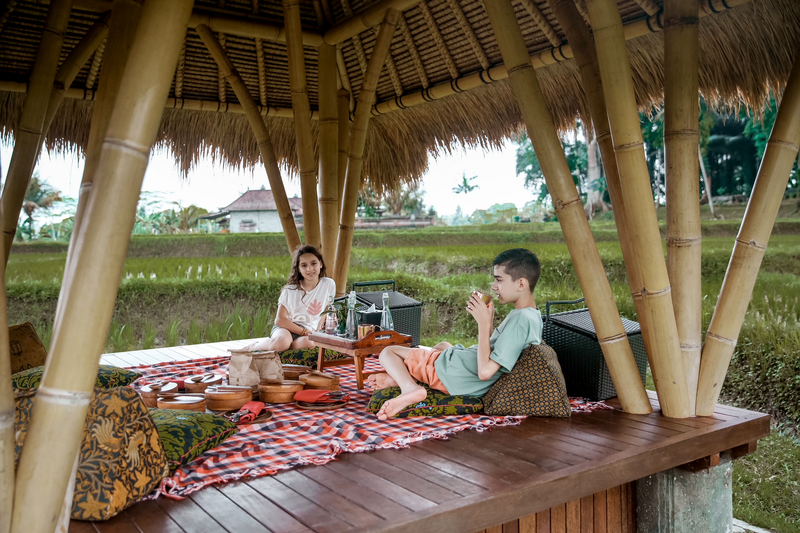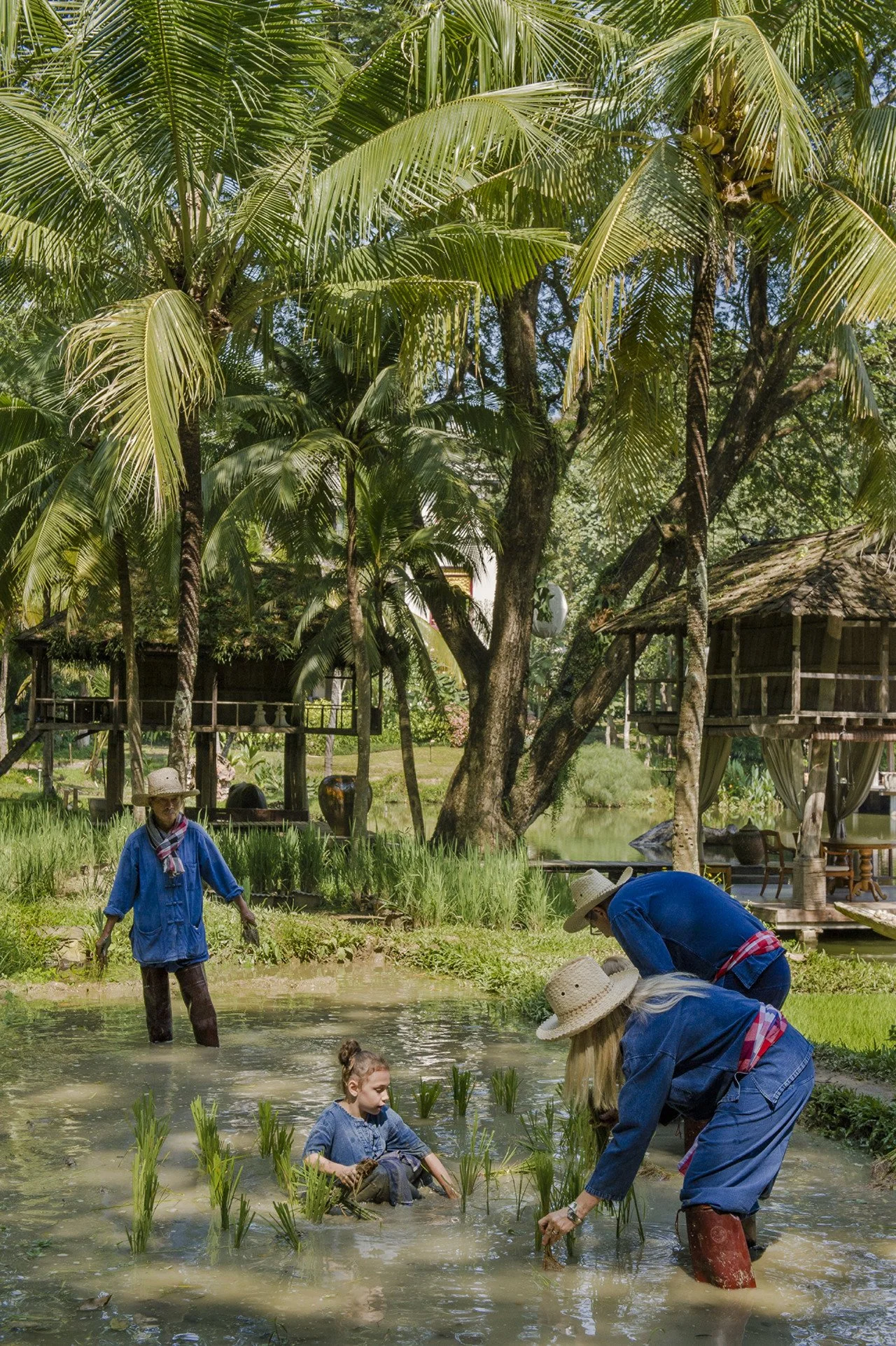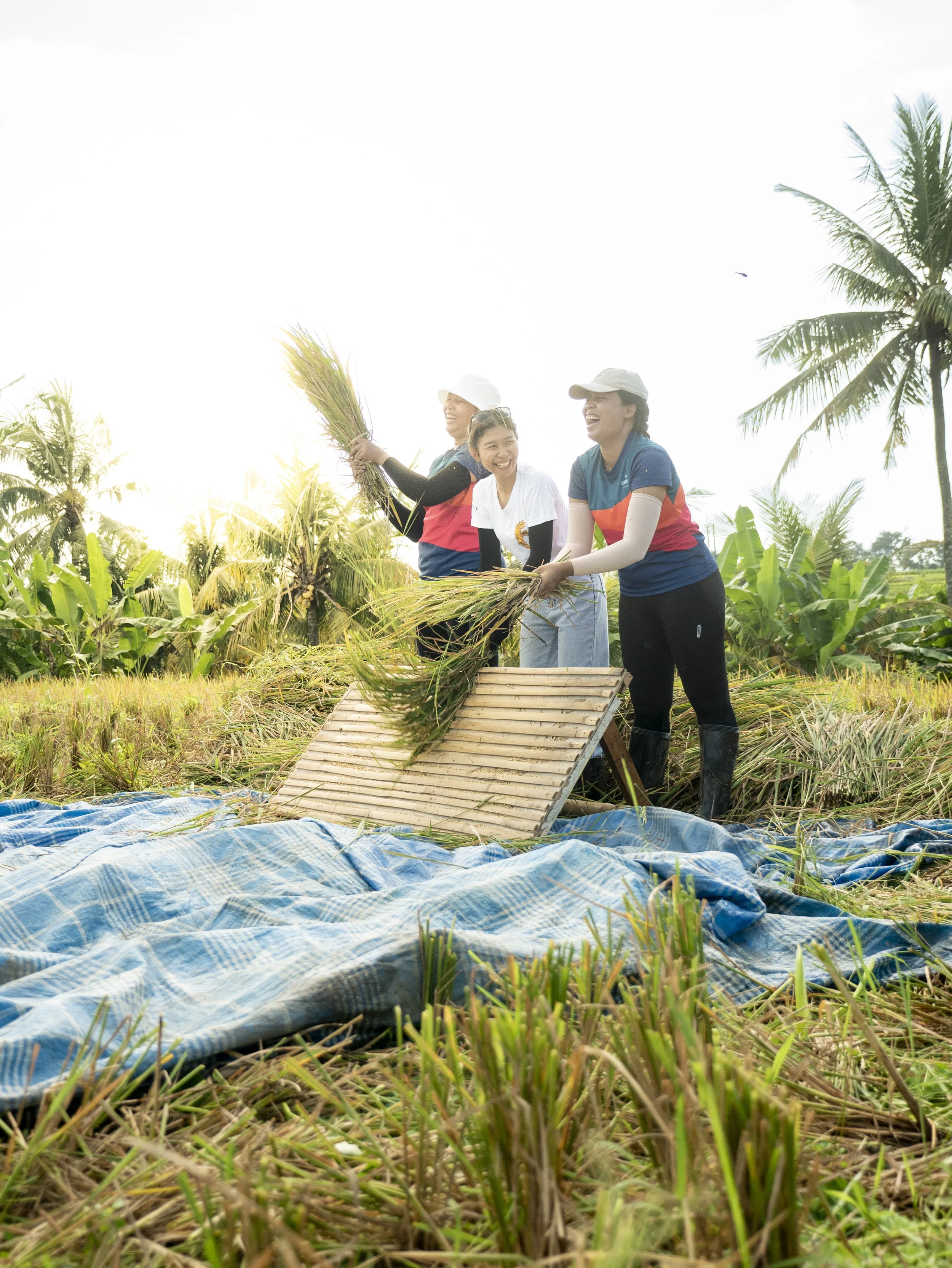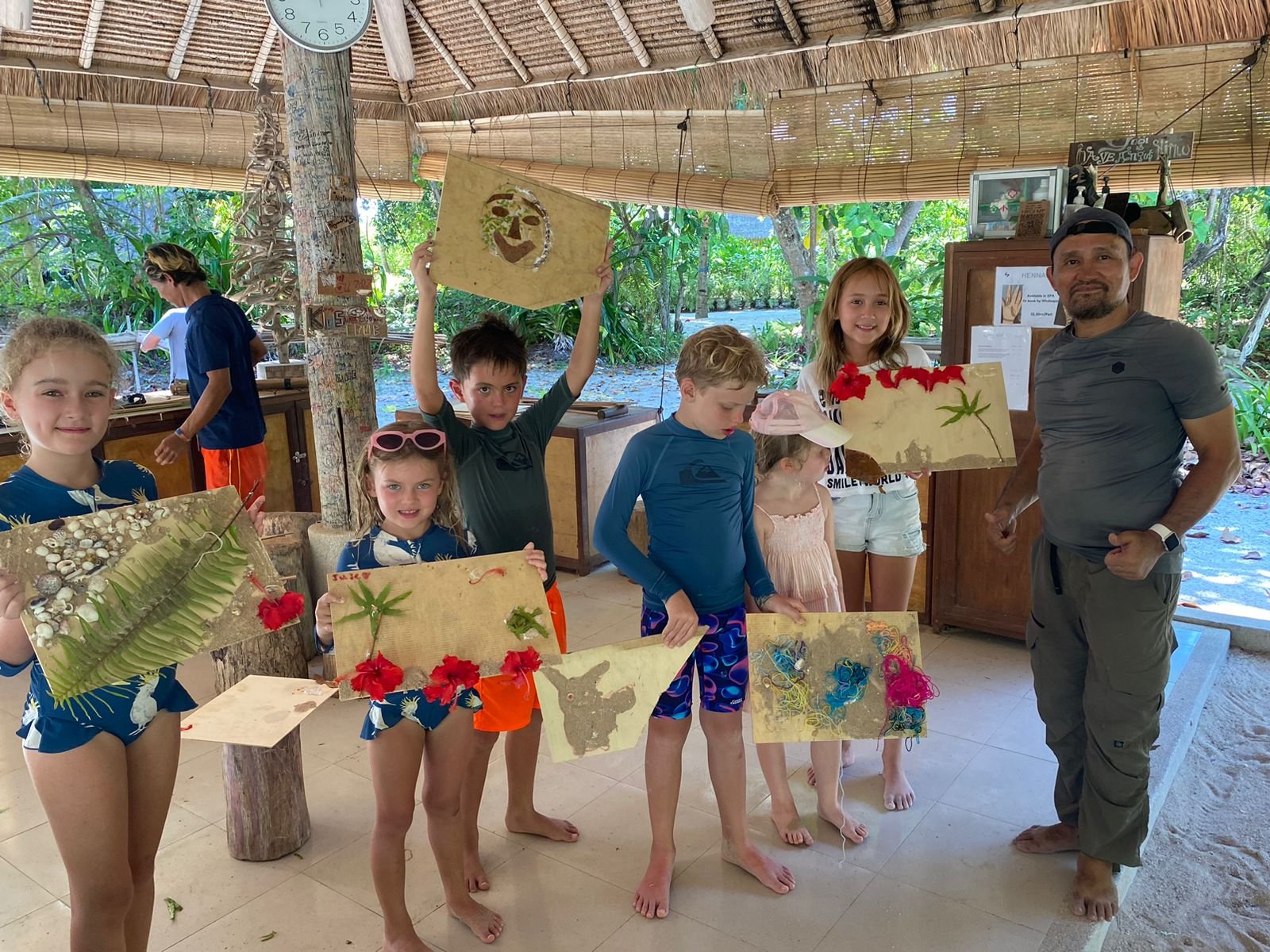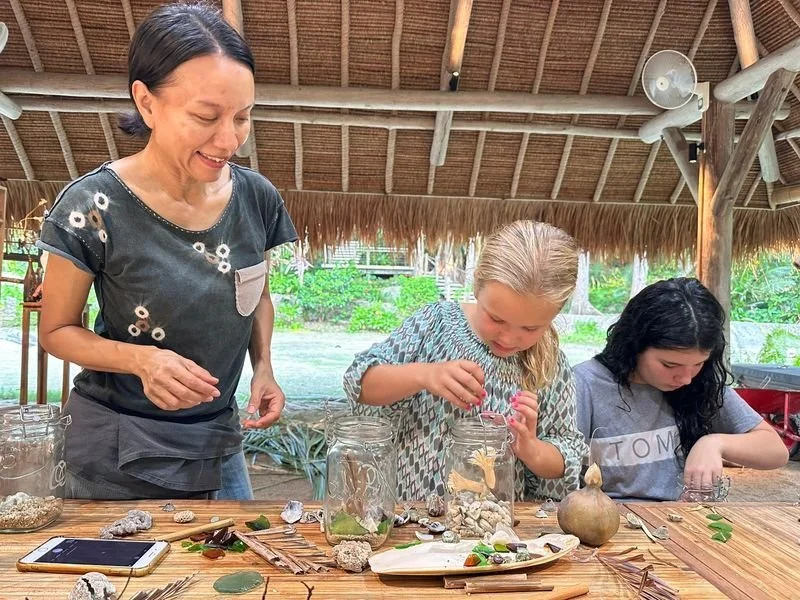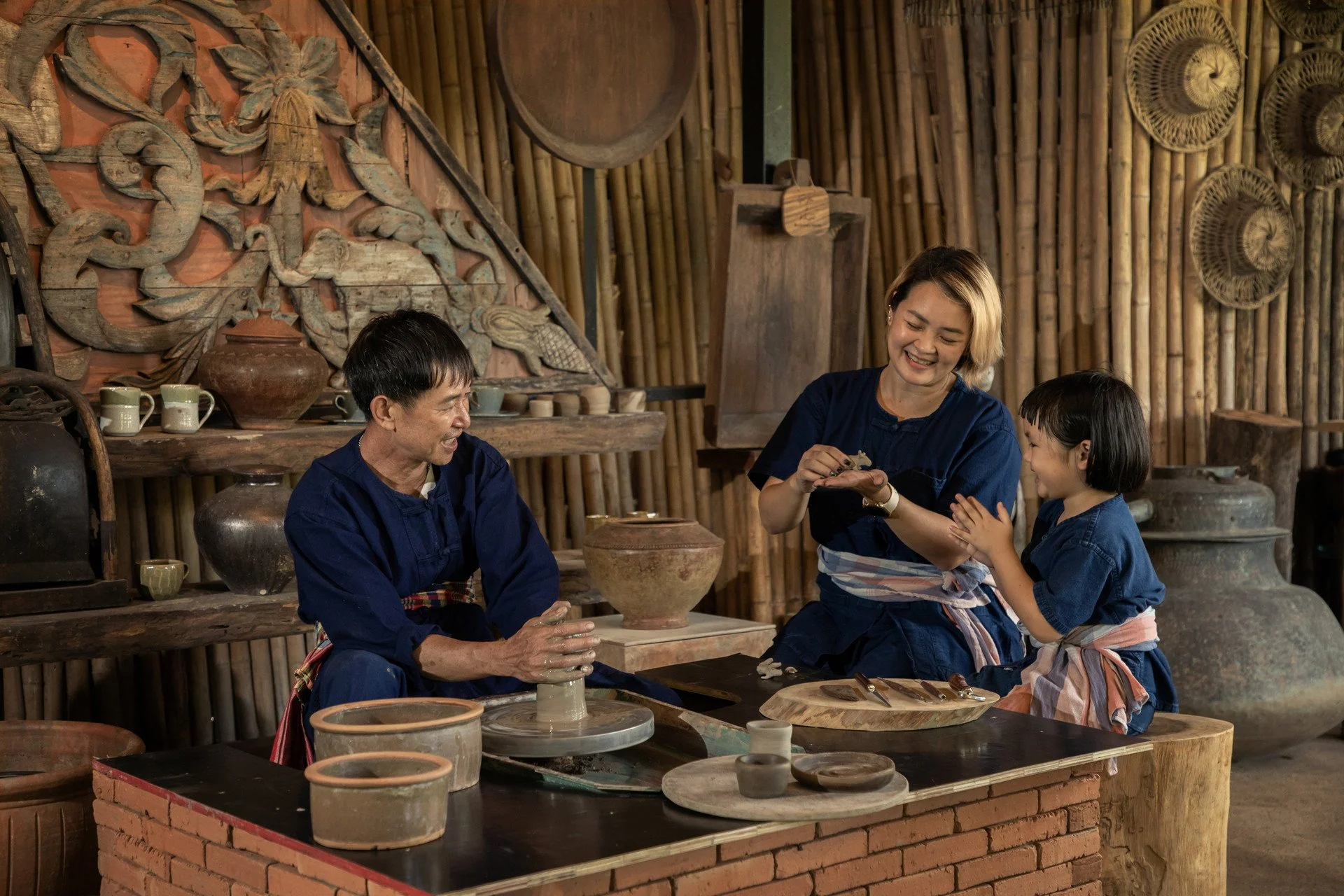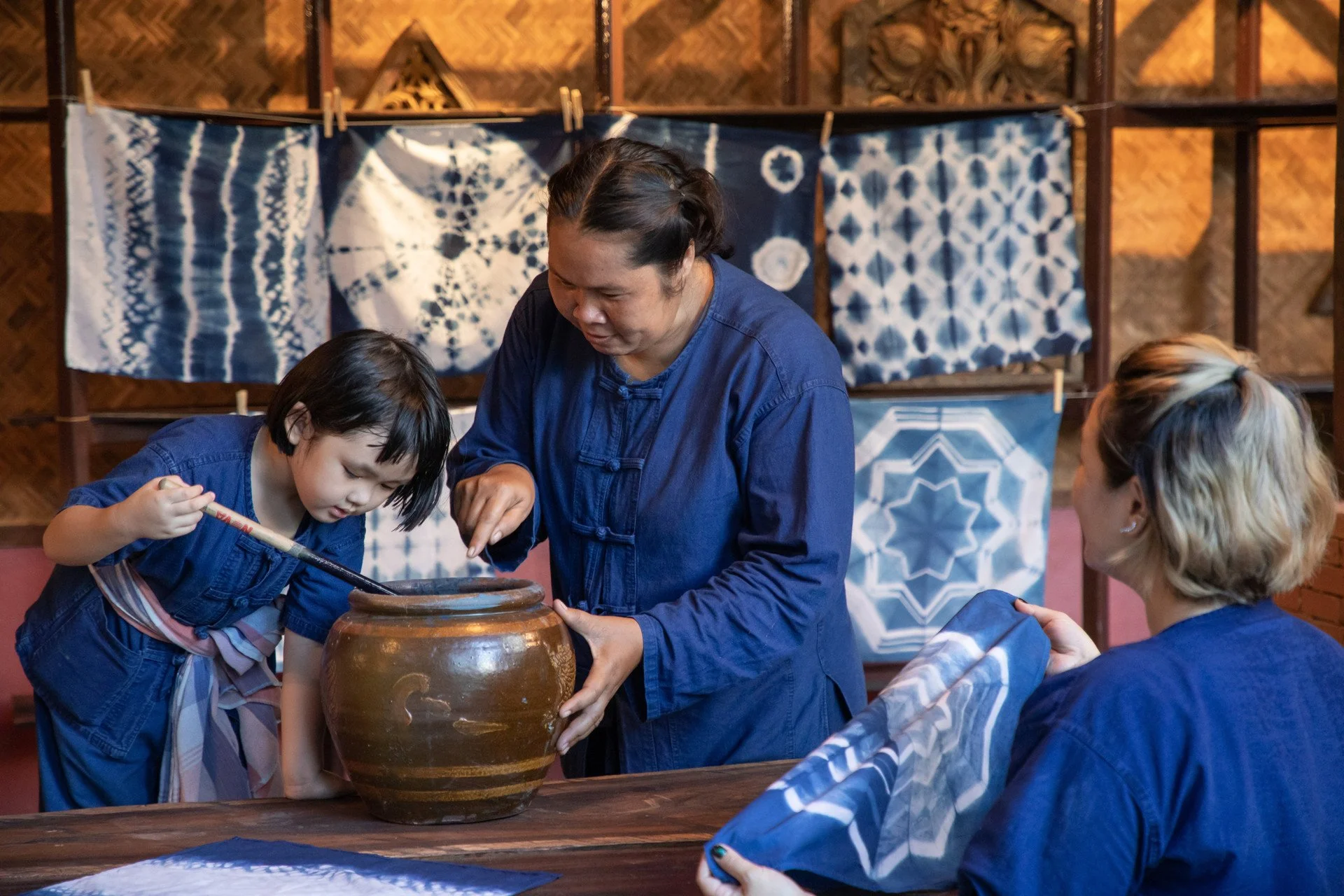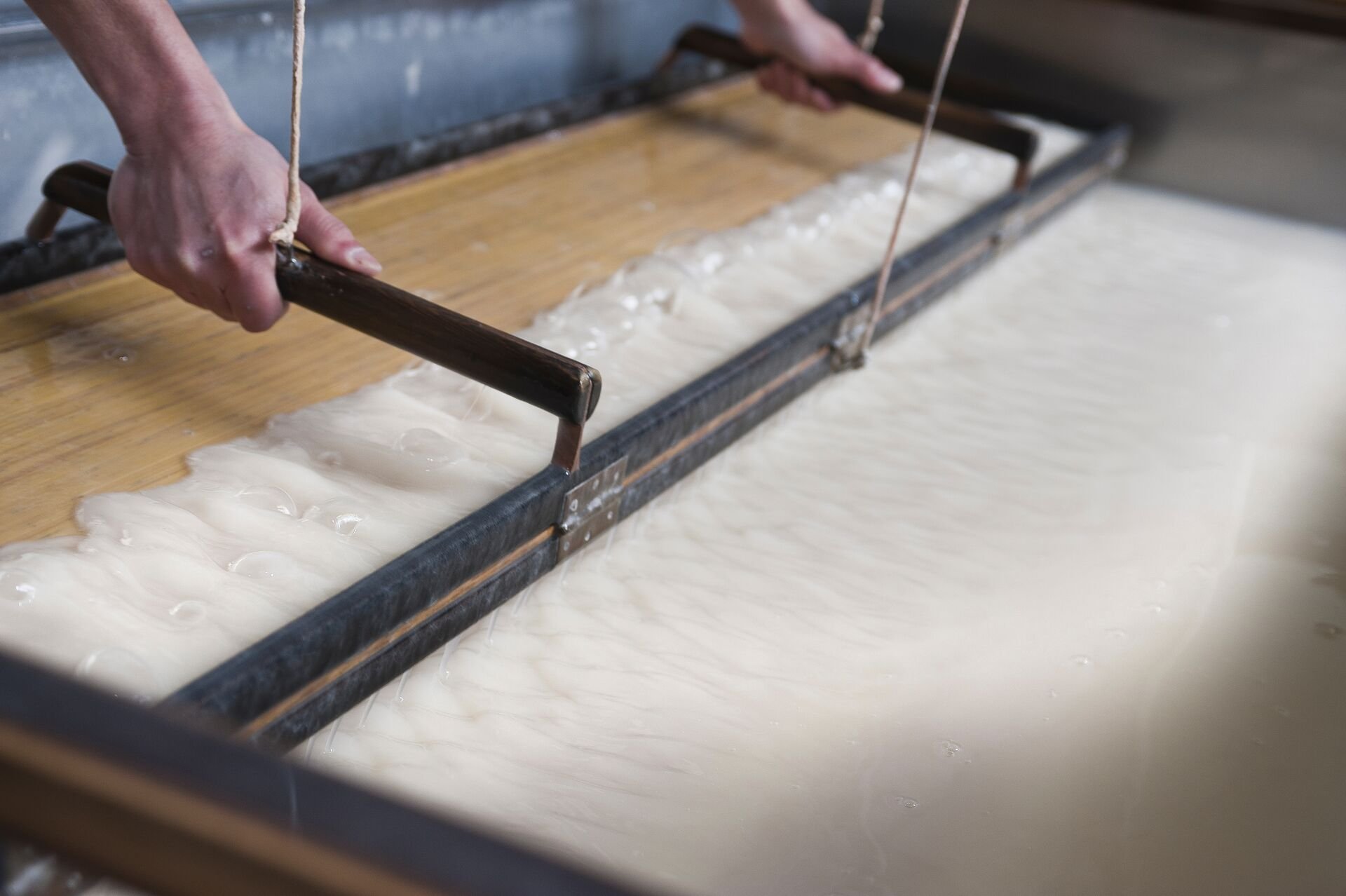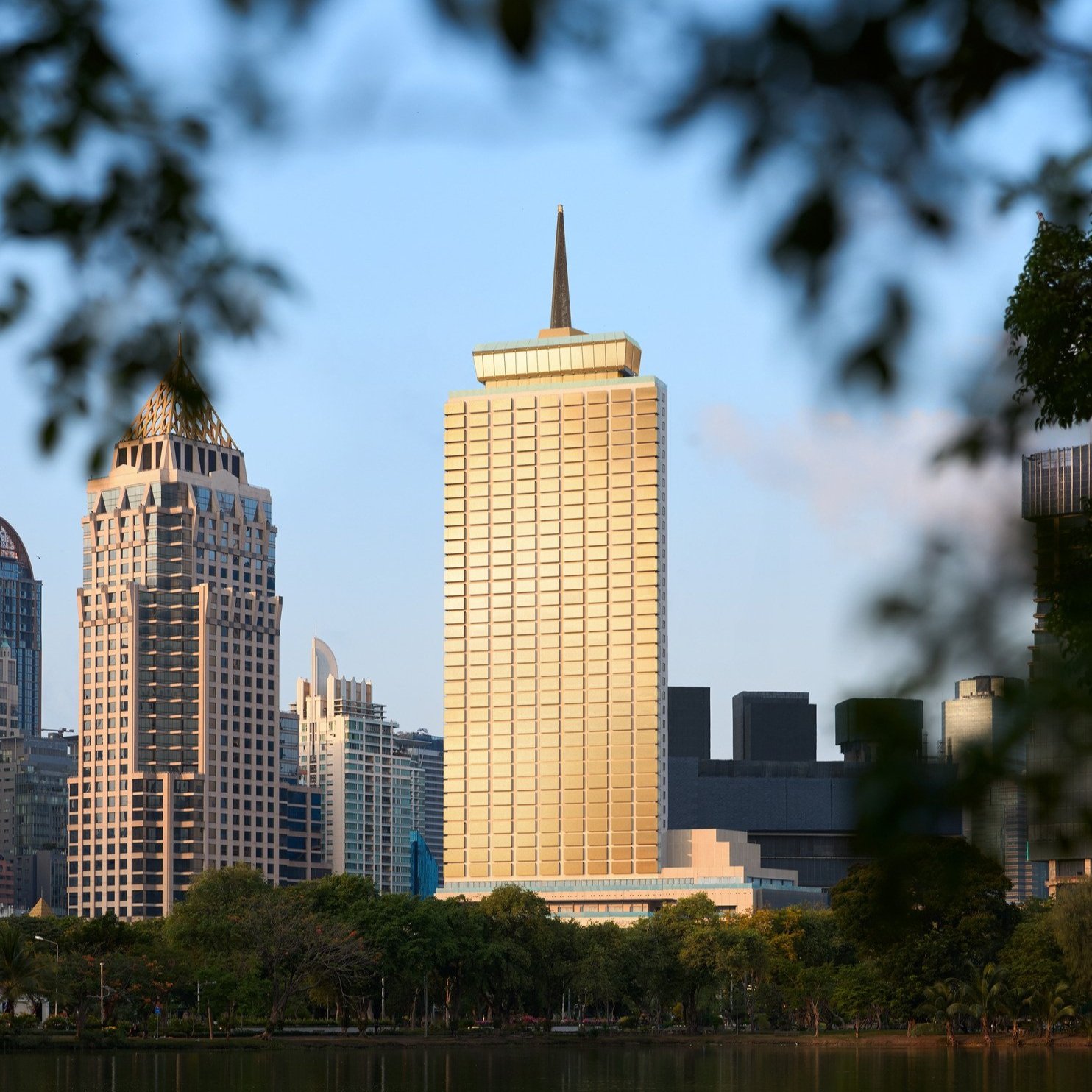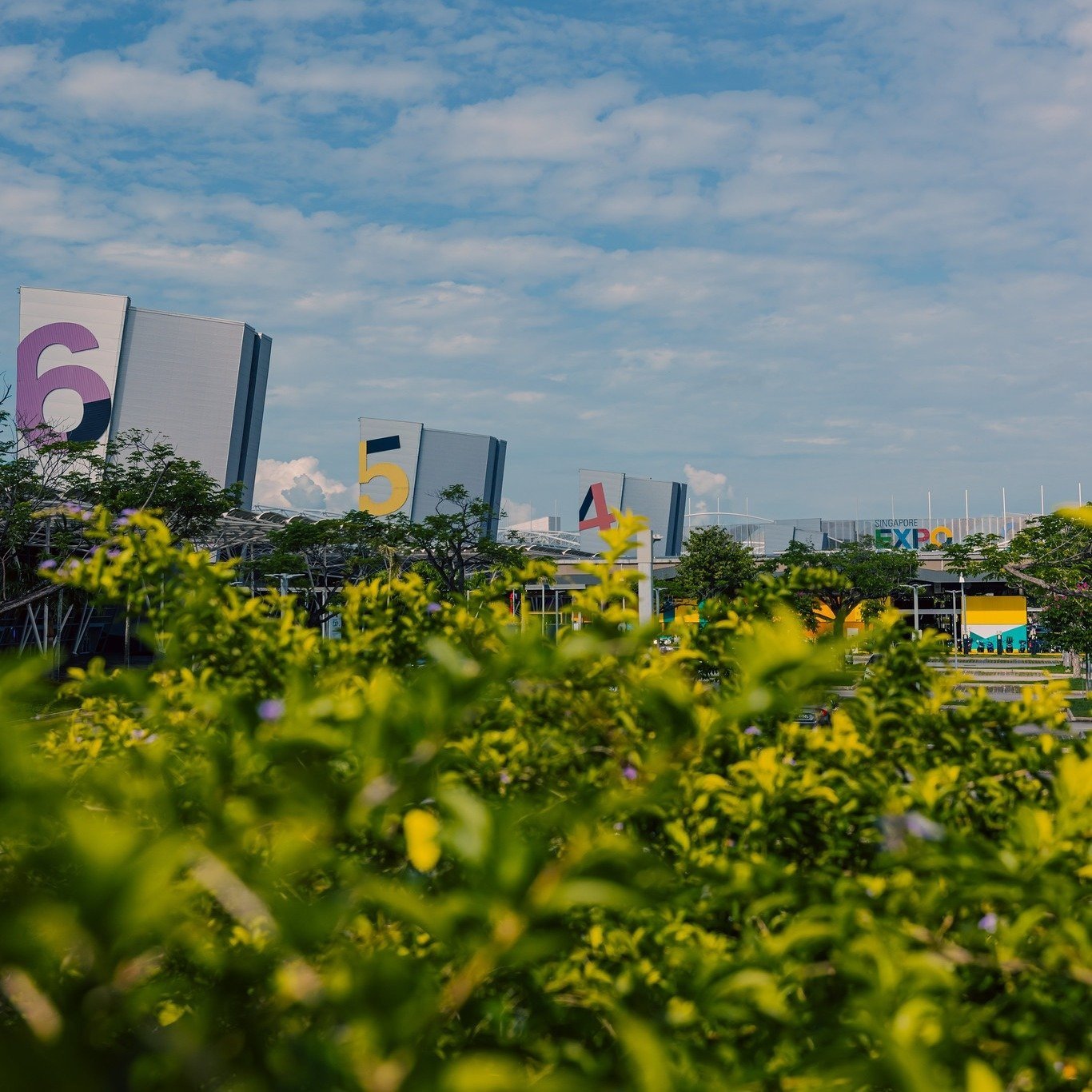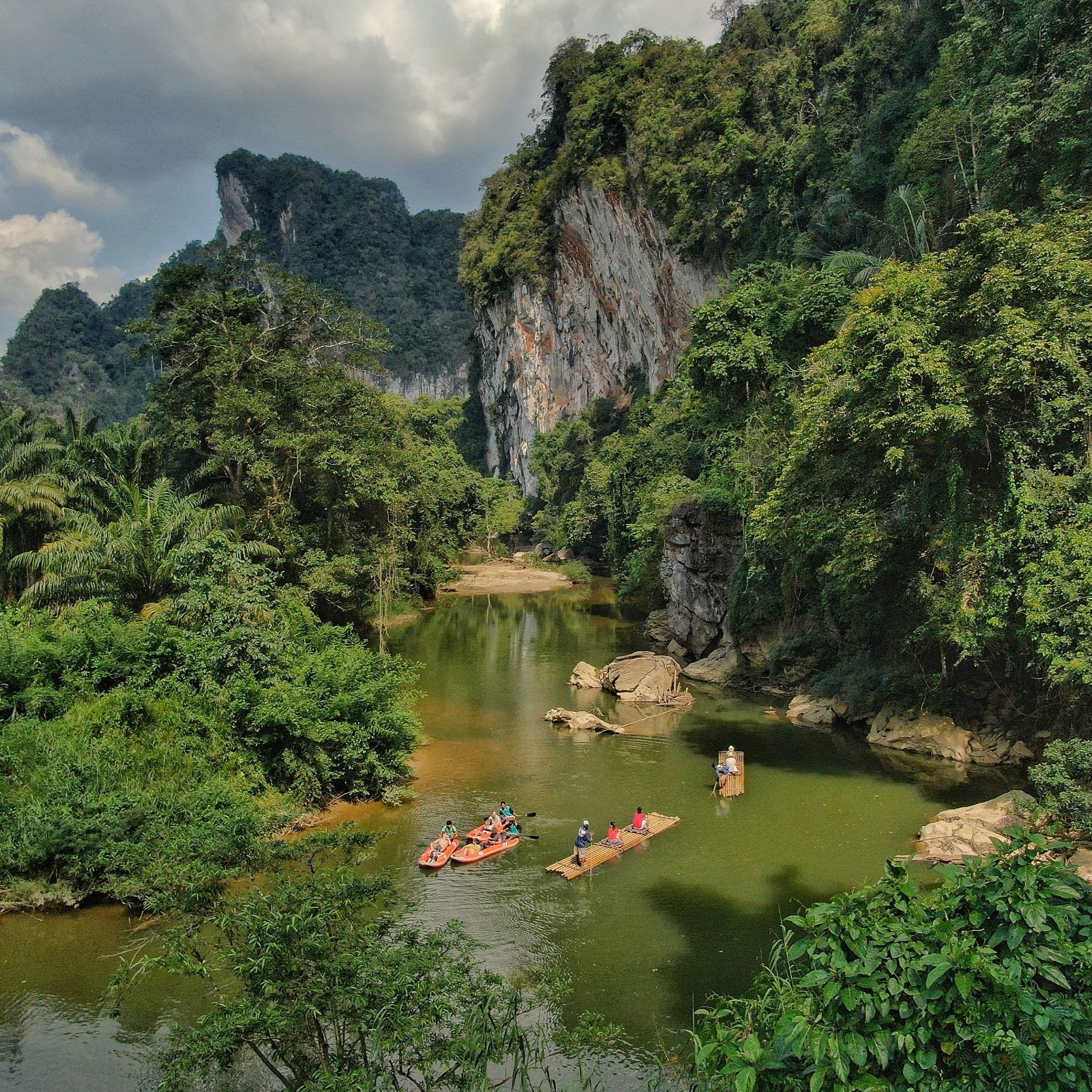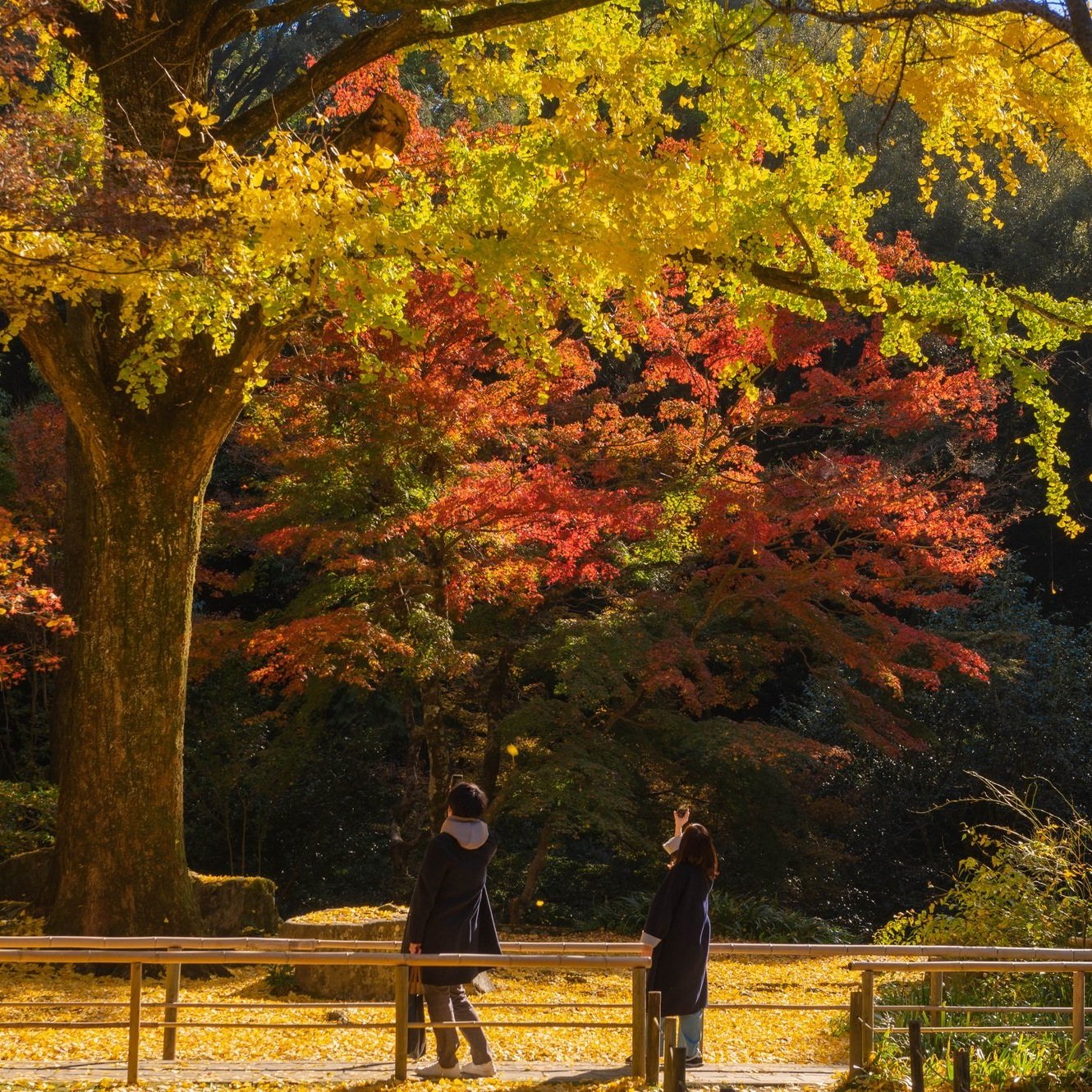Five Proven Ways to Elevate Family Travel Experiences through Immersive Cultural Tourism
Photo by: Capella Ubud, Bali
There has been a noticeable shift in the preferences of travelers. Many are moving away from traditional sightseeing and looking for more meaningful cultural experiences that allow them to connect deeply with their destinations.
According to sustainable travel data released by Booking.com on April 22, 2024, 96% of travelers who engaged in sustainable practices reported that participating in authentic, local, and cultural tours or activities enhanced their travel experience.
Sustainable tourism has become a crucial aspect of this evolving landscape. It's not just about reducing environmental impacts anymore; it's about engaging visitors in ways that help preserve and celebrate local cultures.
Immersive family activities at hotels and resorts can play a significant role in this mission. They offer guests the chance to learn about local customs and traditions, interact with the community, and contribute positively to the local economy.
With a diverse range of cultures, religions, and languages, Asian destinations offer many opportunities for travelers to have an unforgettable experience.
However, in April 2023, Booking.com reported that 44% of travelers are uncertain about where to find more sustainable options. Notably, while 75% seek authentic experiences that reflect the local culture, 40% remain unsure about how or where to find tours and activities that will ensure they contribute back to the local community.
Examples of Hotels Making Their Cultural Tours Easy to Find
Understanding the challenges travelers face in finding immersive cultural tourism options, several hotels and resorts across Asia have taken proactive steps to make their offerings accessible and easily discoverable.
One example is Six Senses hotels and resorts. They showcase their various activities on a mobile app that offers information beyond property details. Guests can explore guided cultural tours and community projects.
Bambu Indah partners with Green School Bali for holistic, nature-immersed educational programs in a wall-less, bamboo campus. This collaboration introduces visitors to sustainable practices and Balinese crafts through easily bookable day visits and workshops.
Another noteworthy mention is the Shinta Mani Wild in Cambodia, which offers a range of activities aimed at preserving local traditions and enhancing the livelihoods of local communities. The hotel's website features a dedicated section for adventures such as foraging and boat trips, ensuring that potential guests can plan their itineraries well in advance.
These hotels show how proactive engagement and effective communication can bridge the gap between travelers and cultural tourism options. By integrating technology, forming local partnerships, and providing clear and appealing information, they make it easier for guests to choose experiences that celebrate and sustain local cultures and environments.
Meanwhile, here are examples of how Asia’s hotels and resorts integrate local traditions, crafts, and immersive experiences into their guest offerings.
1. Organize Experiential and Immersive Stay
"The inspiration behind our property in central Bhaktapur is multifaceted, encompassing our deep appreciation for the city's cultural heritage, our commitment to community living, and our desire to give back to our roots by preserving and promoting the cultural heritage they cherished," shares Shailaja Pradhanang, Custodian of The Nanee.
The hotel curates "The Nanee Signature Experiences" for travelers to visit Bhaktapur's hidden gems. These exclusive experiences require pre-booking.
Early Morning Tour
At dawn, Bhaktapur comes to life with the sound of temple bells and locals in traditional attire visiting ancient temples. Sacred rituals and offerings provide an extraordinary cultural experience that connects visitors to the town's timeless traditions.
"As the sun rises, the marketplace buzzes with energy, featuring freshly brewed tea, cheerful local vendors, and a charming display of intricate crafts. Bhaktapur's blend of spiritual and market activities offers visitors a memorable and engaging experience," says Shailaja.
Photos by The Nanee
Evening with a Local Artisan
Bhaktapur is known for its rich cultural heritage, exquisite art, and remarkable craftsmanship.
"Evening with a Local Artisan" offers travelers a curated experience to visit artisans' homes, workshops, and galleries. Guests sip High Himalayan tea paired with The Nanee's specialty delicacy while hearing the artisans' personal stories and the stories of their works and guild, all in the setting of their residence for an authentic experience.
This program provides a unique opportunity for guests to observe the artisans' craftsmanship and contributes significantly to the artisan's family as a financial incentive to preserve this age-old tradition.
Woodcarvers stand out among the many skilled artisans who call Bhaktapur home for their intricate designs and traditional carving methods. Photos by The Nanee.
Bhaktapur by Night
As the sun sets, Bhaktapur reveals its evening charm. The narrow alleys and courtyards are softly lit by streetlights, creating an enchanting ambiance. The streets transition from the day's activity to a peaceful stillness, offering a tranquil retreat.
"In this serene environment, locals and visitors gather in public courtyards and cozy corners, engaging in conversations and sharing stories. Bhaktapur at night offers a peaceful setting to appreciate the town's historical monuments and temples, highlighting its heritage and timeless charm in an intimate setting," shares Shailaja.
Photos by The Nanee
Culinary Appreciation and Family Dinner
When it comes to experiencing local culture, nothing compares to sharing a meal with a family in their own home. At The Nanee, the Culinary Exploration and Family Dinner offers guests the chance to immerse themselves in Bhaktapur’s culinary traditions.
This immersive activity begins in the morning as guests join the homemaker at the local market. It offers insights into traditional cooking ingredients, local food processing methods, and a close-up view of the community's daily life and practices.
In the evening, guests gather around a family table with pre-prepped local dishes. With their host family, guests cook and share these delicacies while exchanging cultural stories. This hands-on experience lets guests participate in Bhaktapur's vibrant culinary traditions. It's an interactive way to savor home-cooked Newari dishes and connect with the city’s culinary heritage and local dining customs.
Juju Dhau, a sweet custard-like yogurt, is a staple at Newar feasts, ceremonies, and gatherings. Meaning "King of Yogurt" in Newari, Juju Dhau is crafted from fresh buffalo milk for a rich, creamy taste. Photo by The Nanee.
Chef's Table
The Nanee's Chef's Table provides an intimate rooftop dining experience with gourmet meals and panoramic views of Bhaktapur. Depending on the season, guests may see the moonrise over the Himalayas, adding enchantment to the evening.
At the Chef's Table, guests can enjoy the dishes and cooking classes led by the hotel's chefs. As dishes are prepared, the chef narrates the story behind each creation, providing a deeper appreciation for the region's culinary heritage.
Paired with local drinks and engaging storytelling, this experience offers a perfect blend of social interaction and gastronomic delight.
Immersive Festival Experiences
Bhaktapur's festival scene is a vibrant display of ancient traditions and communal celebrations, and The Nanee brings these experiences to life for its guests. From the grandeur of Dashain to the lively Bisket Jatra and the unique Gai Jatra, each festival offers a distinct view into the rich culture of this UNESCO World Heritage site.
The Nanee's Immersive Festival Experiences are curated to ensure that guests engage authentically with these celebrations. Guests can join locals in traditional ceremonies, witness colorful processions, and explore bustling markets filled with festive treats and crafts.
The Kartik Nach, established by King Siddhi Narsingh Malla of Patan in the 17th century, is a traditional dance performed during Kartik (October-November) at Dobal, Patan Durbar Square. This cultural event features Newari musical dramas and dances, highlighting the rich heritage of the Newari community. Photos by The Nanee.
2. Offer Authentic Culinary Adventures
Forest Foraging with the Executive Chef
Shinta Mani Wild's forest foraging experience offers an authentic glimpse into Cambodia's culinary traditions. Led by experienced Rangers and Butlers who have grown up practicing forest foraging, this activity immerses guests in the traditional methods of sourcing food from the wild. The Executive Chef also participates when available or upon guest request, enriching the experience with his insights and expertise.
Ingredients gathered during these foraging trips are incorporated into the hotel's menus, offering guests a taste of authentic Cambodian flavors. For example, red ants and sour leaves add a tangy twist to the sour soup, while fresh monkey leaves are a highlight in salads.
Even when weather conditions prevent foraging, the on-site farm and hydroponic systems ensure that guests can still experience these unique flavors. Cooking classes further enhance this cultural exploration, offering a well-rounded culinary journey.
Photos by Shinta Mani Wild
Traditional Home Cooking
At Capella Ubud, Bali, the Balinese Home Cooking experience offers guests an interactive way to learn traditional cooking techniques that are integral to Balinese life. This isn't your typical cooking class.
Devina Hindom, Capella Ubud, Bali's Marketing Communications Director, shares that upon arrival, guests meet the host, Pak Dewa, at the Camp's Post. Pak Dewa, a fifth-generation Keliki farmer, leads the guests through lush rice terraces and forest fields, harvesting fresh vegetables and fruits along the way.
Once at Pak Dewa's home, guests are welcomed into a beautifully designed traditional Balinese compound. In the kitchen, Pak Dewa and his wife, Bu Jro, share their culinary traditions using handmade utensils like thick tree trunk cutting boards and flat lava stones for grinding. Guests participate in preparing simple yet flavorful dishes.
This hands-on experience culminates in enjoying the meal together, providing a deeper appreciation for Balinese culinary arts and the cultural significance behind them.
Interactive Farm-to-Table Cooking Classes
At Four Seasons Resort Chiang Mai, guests are invited to interactive cooking classes that marry culinary arts with sustainability.
Marissara Kummool, the resort's Assistant Public Relations Manager, shares that guests begin by walking through the chef's garden to handpick fresh, locally grown herbs, vegetables, and spices. This experience allows them to connect with nature while understanding the importance of sustainability and reducing food miles.
Guided by expert chefs, guests learn traditional Thai cooking techniques and innovative recipes that highlight the rich flavors of local produce.
Savoring the results of their culinary efforts, guests leave the class with not just new recipes but a deeper appreciation for local, organic, seasonal produce.
Photo by: Four Seasons Resort Chiang Mai
3. Curate an Engaging Agricultural Tour
At Capella Ubud, Bali, guests can witness firsthand how rice cultivation is deeply intertwined with local temple ceremonies. This provides an enlightening look into the spiritual importance of agriculture in Balinese culture.
Walking through the verdant rice fields, guests will find sandstone shrines where farmers make offerings to Devi Sri, the Goddess of Rice, for protection during the growing season.
To round off the experience, guests can relax in a traditional Balinese hut and enjoy a homemade picnic snack. An engaging activity awaits as guests try crafting bamboo-framed, hand-painted kites.
This day with the Keliki farmers is more than just an agricultural tour; it's an immersive glimpse into the villagers' harmonious connection with their environment and spiritual traditions.
Photos by: Capella Ubud, Bali
Hotel Indigo Seminyak Beach also offers guests an opportunity to engage with the local agricultural community through its rice planting activity.
"We want to offer our guests a glimpse of the experience and the opportunity to give back to the community, either by joining us in the field or by participating in our trips to the foundations to donate our harvests. Additionally, beyond sharing and raising awareness of sustainability issues, this is also an educational activity for those who are not familiar with rice planting," says Ian Kusuma, Director of Marketing and Communications, Sales and Marketing.
Guests receive verbal information about the rice planting process, local traditions, and the cultural significance of farming in Bali. This casual yet informative discussion enriches the guest experience and cultivates genuine connections with local farmers.
At Four Seasons Resort Chiang Mai, guests engage in the ancient art of rice cultivation, Dressed in traditional Mor Hom farmer clothes, they learn from the local farmers precise planting techniques that have sustained Thai agriculture for generations.
This hands-on experience promotes a meaningful connection with the land and its bounty. Children also benefit as they learn the effort involved in growing rice and the importance of consuming food mindfully. It's an educational and eye-opening opportunity for young guests.
Left photo: Four Seasons Resort Chiang Mai; Right photo: Hotel Indigo Seminyak Beach
4. Establish an Artist Residency Program
On Nikoi Island, Ubah Rumah, which means ‘Home of Change’, offers an unparalleled intersection of art, environment, and community engagement.
This program, which began in November 2022 and was inspired by the nomadic culture of the indigenous Orang Laut community and the region’s maritime history, invites a diverse group of artists and researchers to use their creative practices to cultivate deeper connections between guests, staff, and the island's natural surroundings.
According to Alecia Neo, co-artistic director for the residency, Ubah Rumah seeks to inspire future actions focused on sustainability and environmental stewardship by providing a dedicated space for deeper conversations, connections, and contemplations.
A highlight of the residency includes the work of Singapore-based artists Kei Franklin and Jevon Chandra, who facilitated discussions on climate change through their project on flooding. Their initiative brought together guests and staff in meaningful conversations about the climate crisis.
Filipino artist Florence Cinco also led assemblage workshops at the kid's club, encouraging children to create artworks using natural and found materials from the island. Cinco's practice emphasizes mending human relationships with the environment by reintroducing ancient rituals and wisdom. His site-specific sculpture, Unglo, crafted from driftwood collected on Nikoi Island, represents mythical guardians of nature from Samar, Philippines, symbolizing protection and reverence for the natural world.
The residency also featured Singaporean researcher Wendy Zhang, who constructed an insect hotel on the island to pique guests' curiosity about insects and their role in the ecosystem.
Thai artist Sakorn Wongratchasi collaborated with community facilitator Anunta Intra-aksorn, co-founder of Big Trees Foundation, to create a large site-specific sculpture involving guests and the Orang Laut community. Their workshops focused on native plants and local folklore, drawing connections between seafaring communities across Southeast Asia.
These projects not only elevate guest experience on the island but also promote environmental awareness and cultural exchange.
Left photo: Filipino artist Florence Cinco and the children proudly showing their artwork. Right photo: Community facilitator Anunta Intra-aksorn and the children guests on Nikoi Island getting themselves busy with their artwork. Photos by Ubah Rumah Residency.
5. Host Cultural Arts and Crafts Workshops
Hands-On Pottery Workshop
Partnering with local Thai artists, Four Seasons Resort Chiang Mai provides guests with the opportunity to create their own pottery using local materials and traditional techniques.
Guests engage in a creative process that supports local artisans and keeps traditional practices alive. The hands-on experience is both educational and fulfilling, adding depth to their stay at the resort.
Photo by: Four Seasons Resort Chiang Mai
Traditional Tie and Dye Workshop
Expert instructors guide guests through traditional tie and dye techniques, emphasizing the use of natural dyes. Designed for children, these sessions offer a hands-on approach to learning about Chiang Mai's rich textile heritage.
This workshop does more than just teach a skill. This enriching experience ensures that participants actively contribute to preserving local traditions. Many of them leave not just with beautifully crafted pieces but also with a newfound respect for cultural heritage.
Photo by: Four Seasons Resort Chiang Mai
Endek Painting Workshop
This workshop at Hotel Indigo Bali Seminyak is led by local artisans from Agung Bali Collection, a creative company known for innovating and developing designs for weft tie-woven or endek fabrics using various techniques such as tie-dye, airbrush, and surface designs.
During the workshop, guests learn the basics of painting on endek, a traditional Balinese fabric, using gold or silver ink. The intricate process is made accessible and enjoyable, allowing guests to create their own beautiful art pieces.
This partnership with Agung Bali Collection ensures that guests receive hands-on instruction from skilled professionals who are deeply rooted in the craft. The workshop enhances the guest experience and supports the local artisan community, nurturing a deeper appreciation for Balinese textile traditions among visitors.
Gokayama Washi Paper Workshop
On Trafalgar's 13-Day Splendor of Japan tour, guests will visit Gokayama, a serene mountain town renowned for its traditional washi paper-making. This tour introduces travelers to a family-run business that has been preserving this ancient art form since the 7th century.
Guests will observe the meticulous process as family members transform traditional plants into pulp and spread them across mats to create beautifully textured sheets of washi paper. The experience is both educational and hands-on, allowing guests to try their hand at making their own paper.
The workshop highlights the intricate techniques involved in washi paper production and emphasizes the importance of preserving such traditional crafts. Guests can purchase washi paper items directly from the family, supporting their business and helping to sustain this age-old craft.
According to Trafalgar, this visit to Gokayama advances UN SDG 11 - Sustainable Cities and Communities.
Photo by: Trafalgar
Conclusion
Hotels and resorts across Asia are elevating family travel experiences by offering a wide range of culturally immersive activities. Each activity is thoughtfully designed to showcase local traditions and nurture a deeper connection between guests and their surroundings, creating memorable and enriching experiences for all ages.
These culturally immersive activities play a vital role in promoting sustainable tourism in Asia. They do not only enhance the guest experience but also contribute to the preservation of local cultures and environments.
By integrating sustainability into their offerings, these establishments set a benchmark for responsible travel, encouraging travelers to embrace eco-conscious practices and support communities. Ultimately, these efforts will lead to a more sustainable and culturally enriched future for tourism in Asia.


